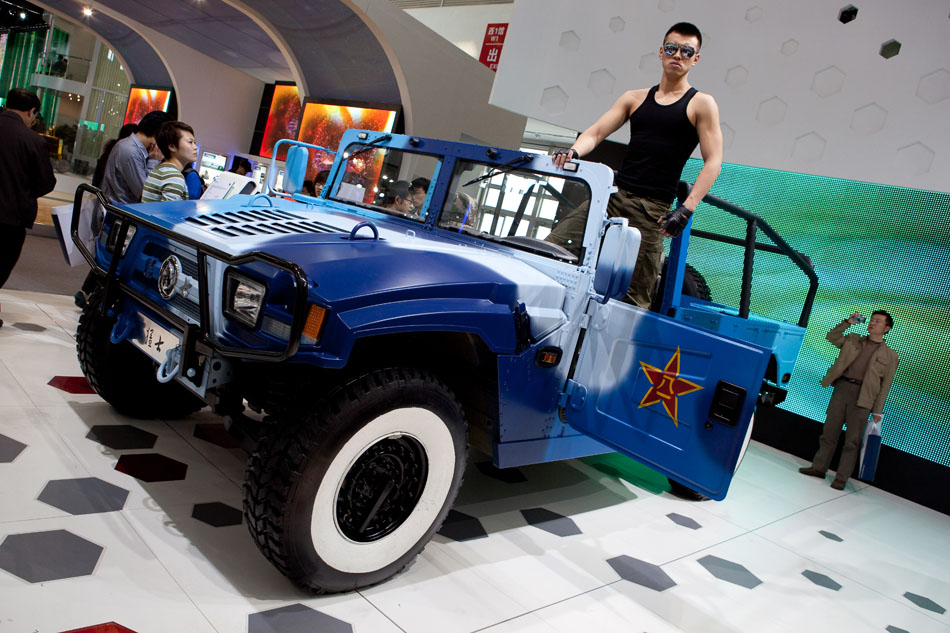May 22, 2011 | Counterfeit Paradises, Development, Society
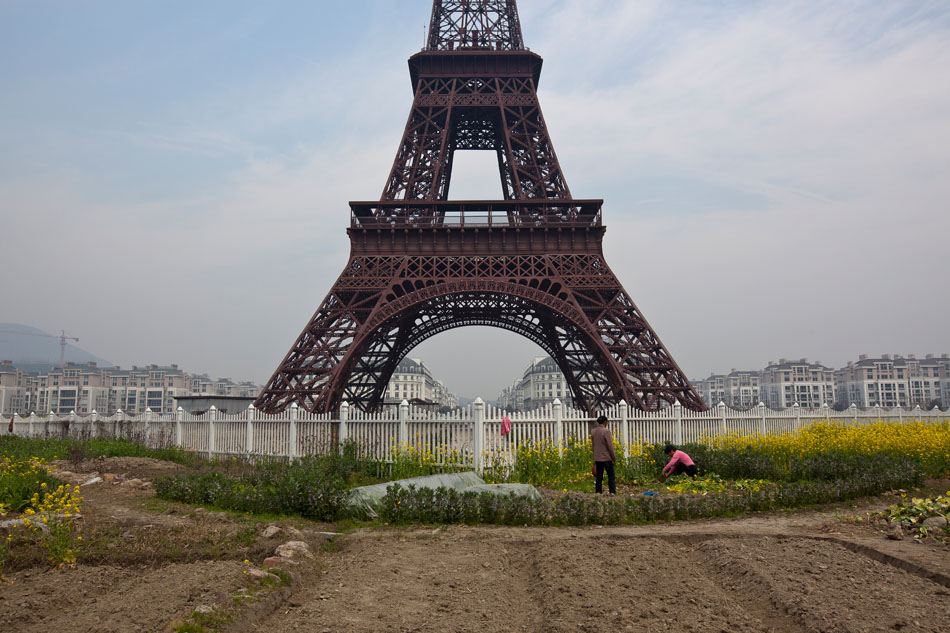
As new cities continue to spring up across China almost overnight, real estate developers are taking architecture and urban design in wildly different directions to tap into the lucrative luxury housing market. Tianducheng/天都城 was one of those hopelessly trying to set a bold new precedent for modern and cultured living with it’s fake Eiffel Tower overlooking Parisian townhouses. The knockoff of the 13th arrondissement, however, remains sparsely populated and only draws well-heeled clientele to its adjacent resort and villas modeled after Fontainebleau Palace. For now, many of the apartments are occupied by groups of migrant laborers working on surrounding megablocks, while other locals have gone so far as to appropriate the green space surrounding the Eiffel Tower for private ad hoc farming plots. Otherwise Tianducheng along with the attached French-themed village park is mainly used as a backdrop for wedding photography companies hoping to give young Chinese couples a taste of The City of Light while balancing their desire for traditional nuptial observances.
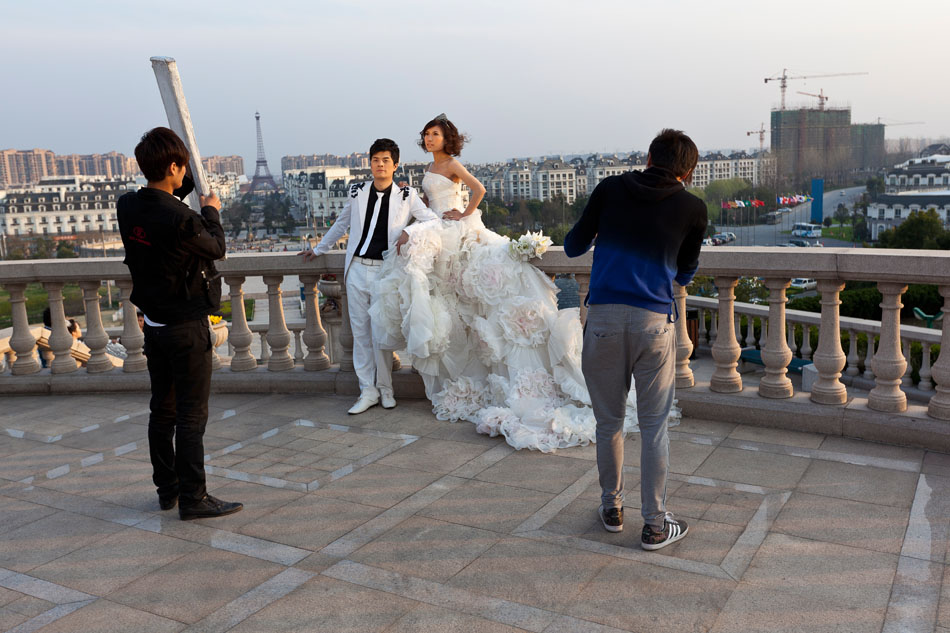
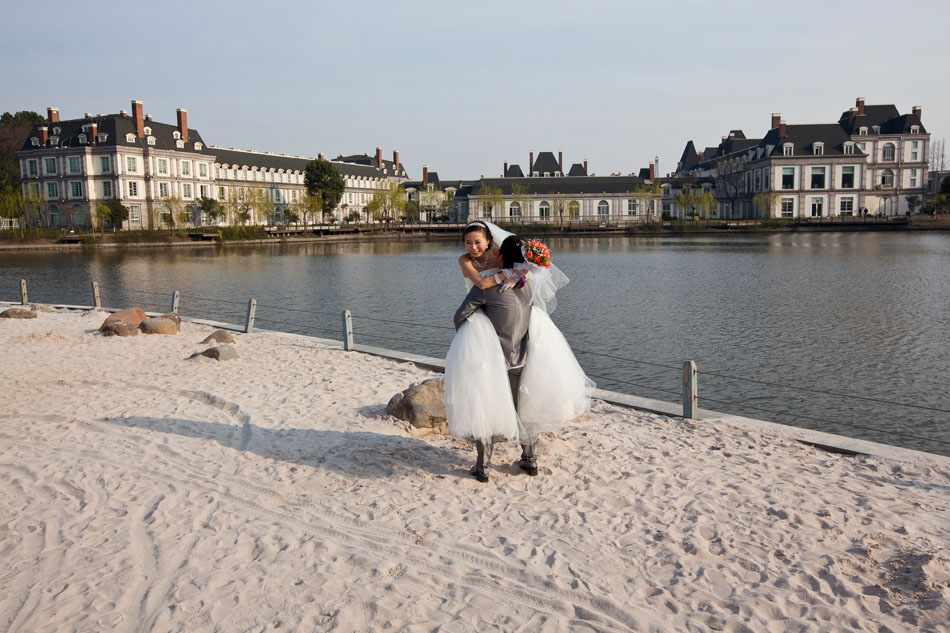
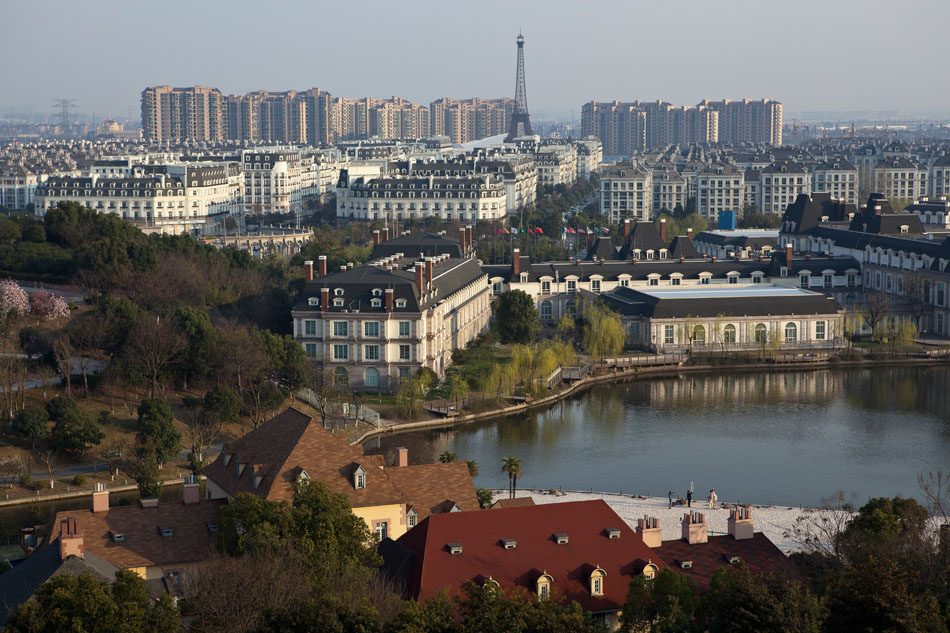
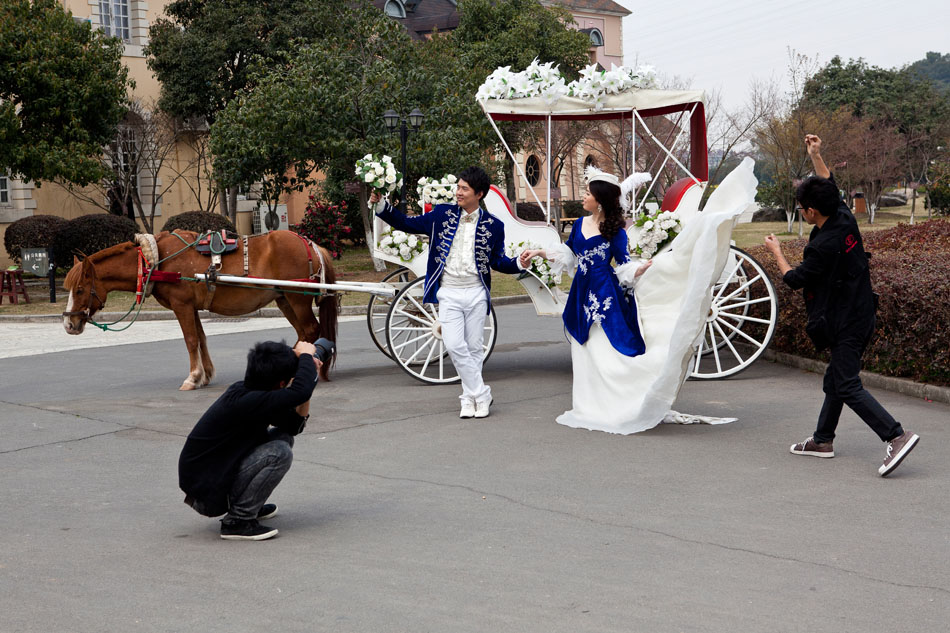
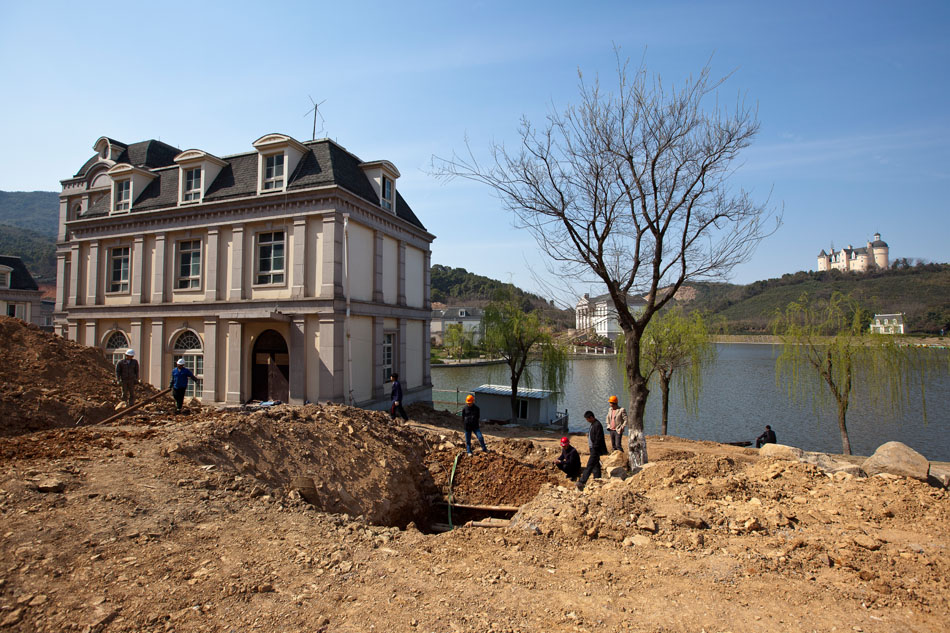

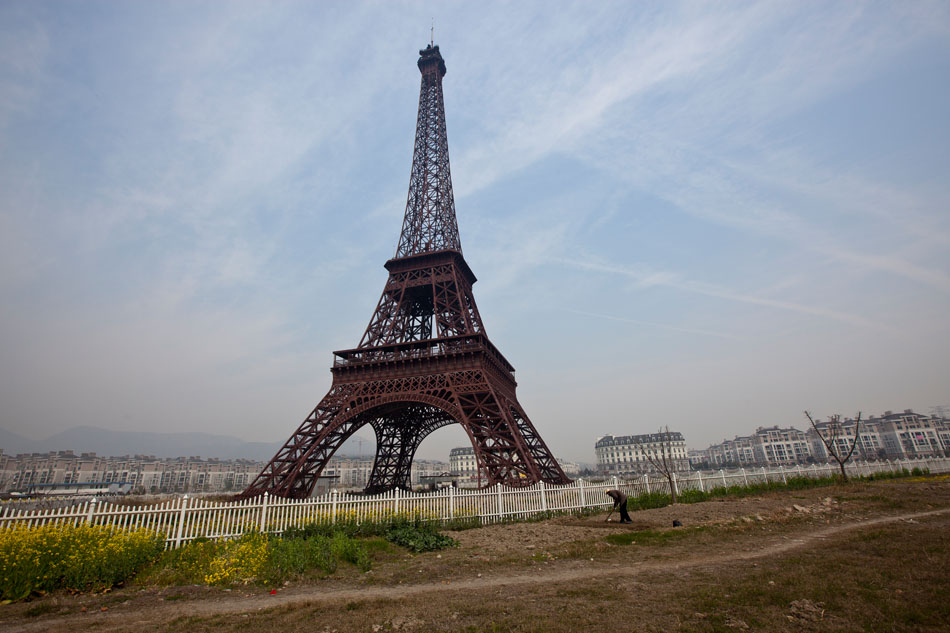
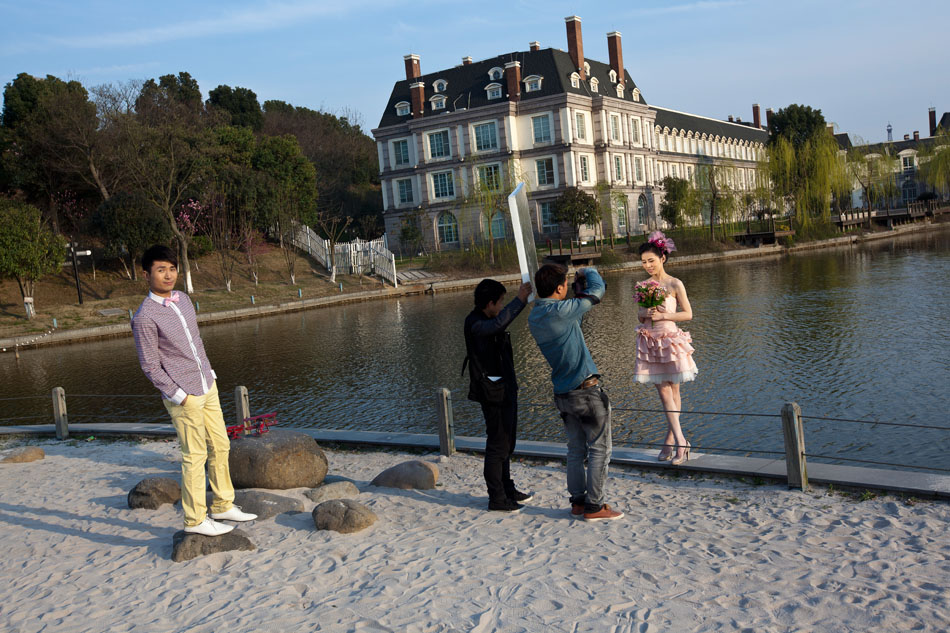
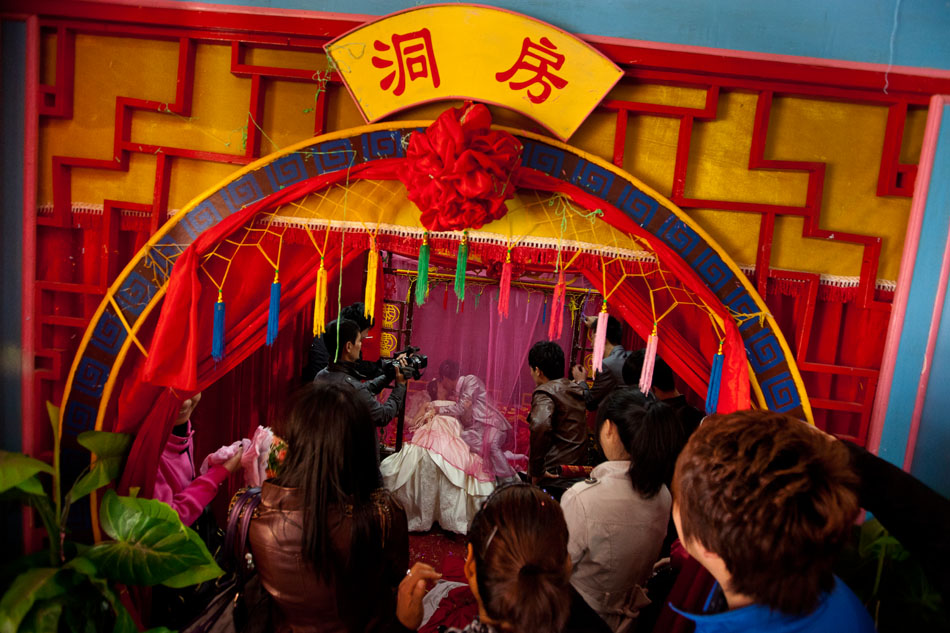
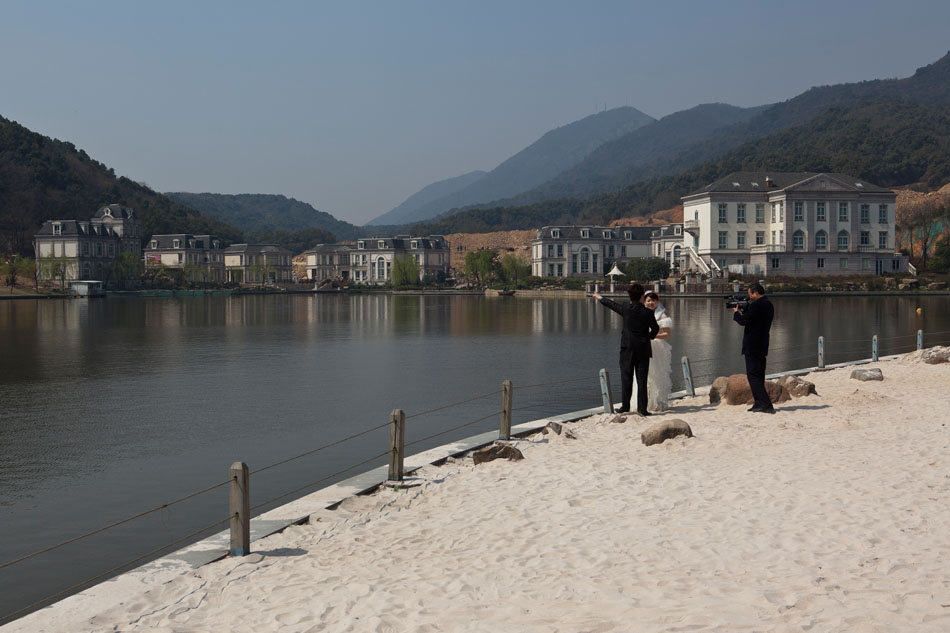
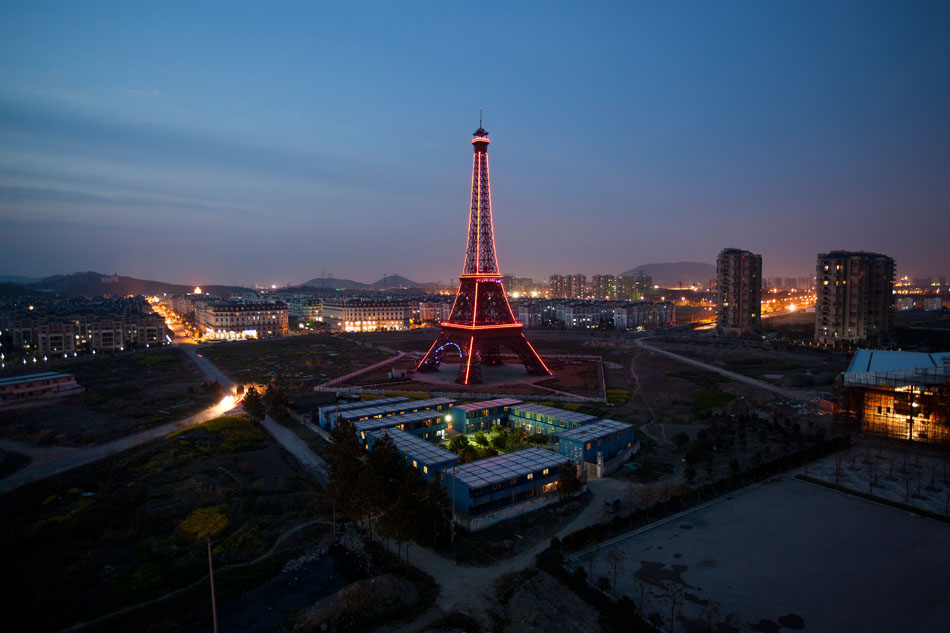
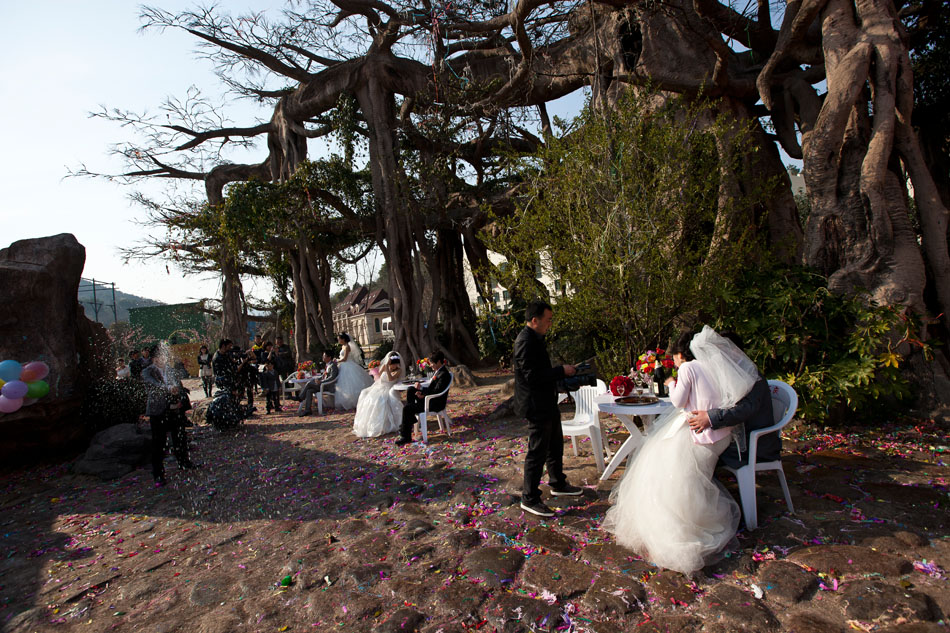
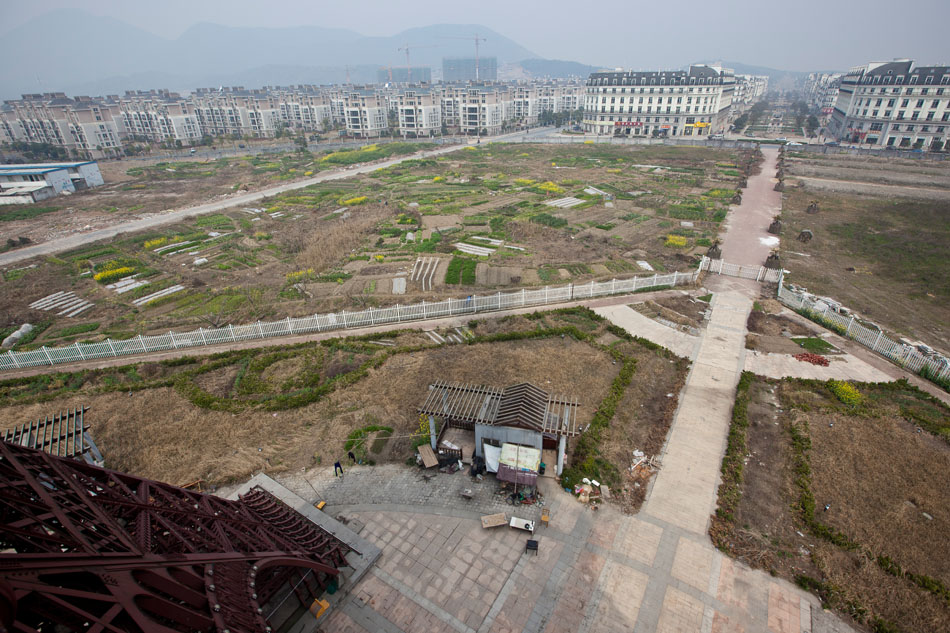
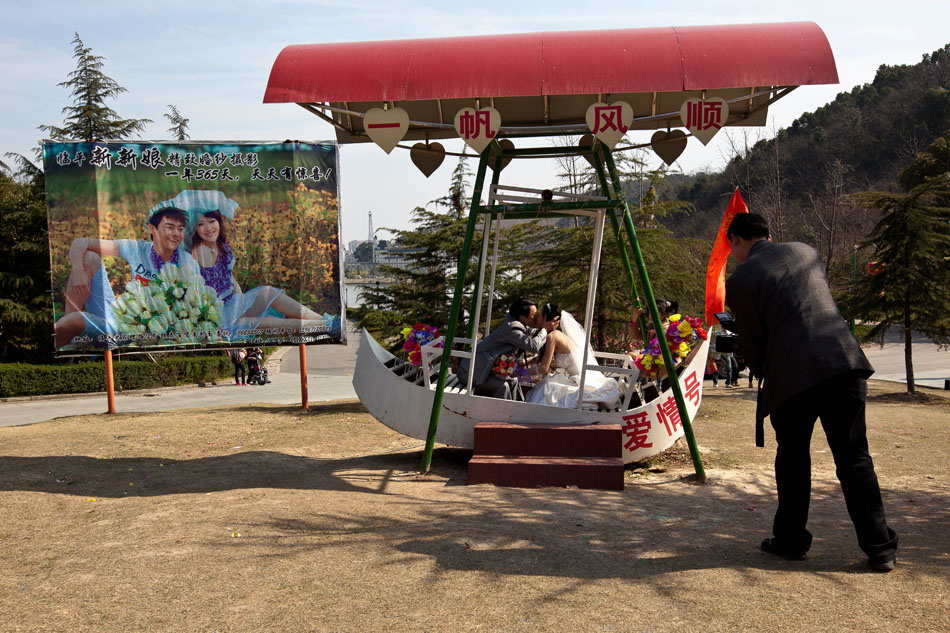
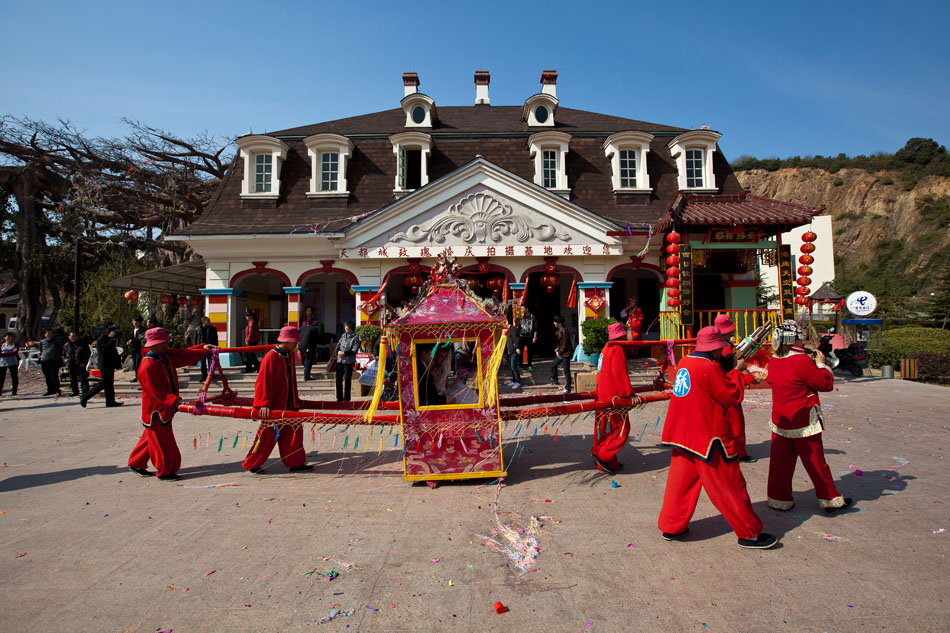
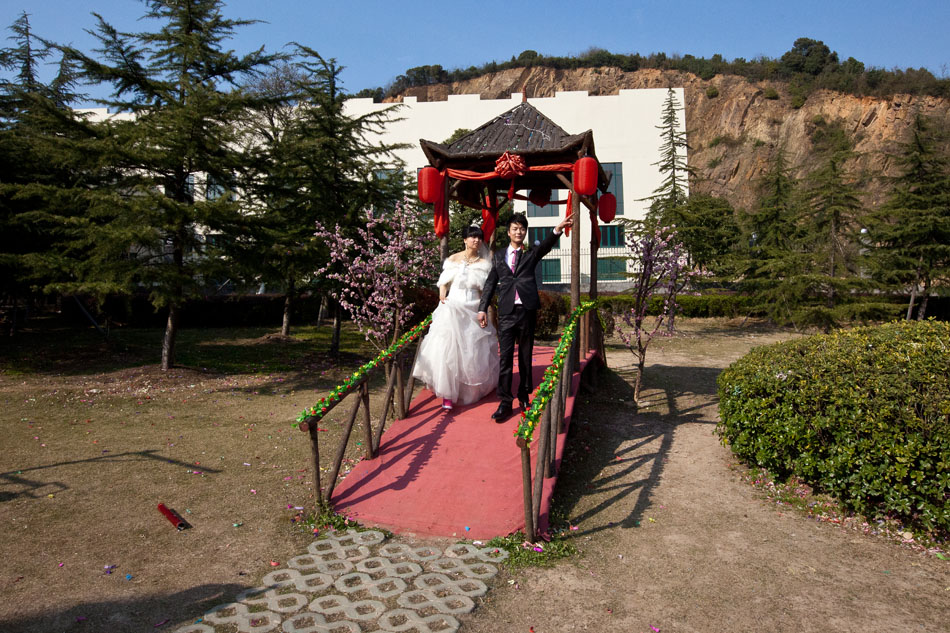
Mar 30, 2011 | Counterfeit Paradises, Society
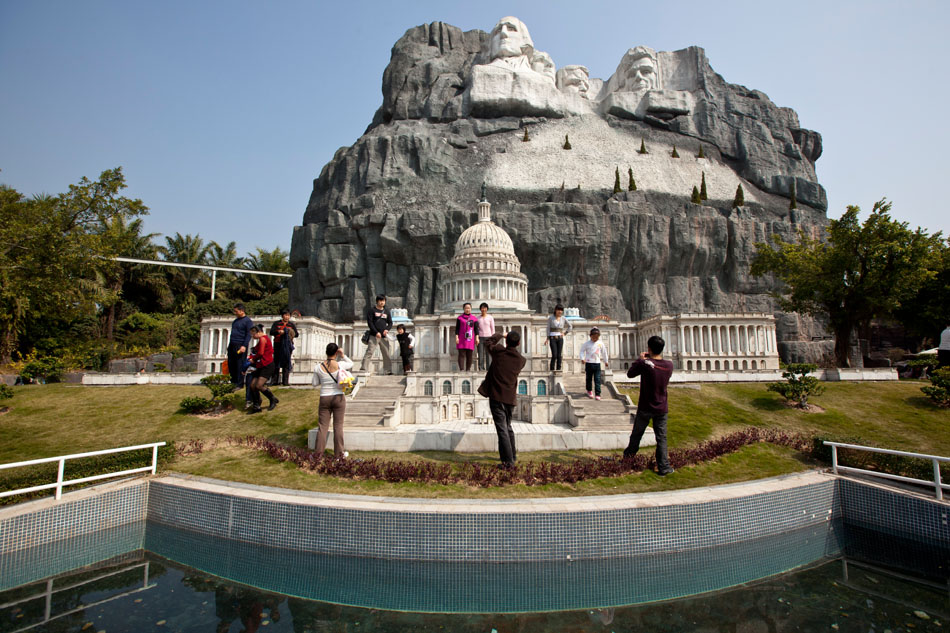
International vacations are a must for the burgeoning number of nouveau riche across China. A well-used passport is a sure sign of fulfilling a “modern” and “cultured” lifestyle and completes the trifecta of high social status along with ownership of multiple homes and foreign luxury cars. Even in the face of the global economic downturn, China continues to boast the fastest growing outbound tourism market in the world. In 2009, the average expenses paid by Chinese for international travel went up 21% and will continue to grow as more and more flex their purchasing muscle. In Shenzhen, however, a favorite travel destination remains the Windows on the World. A short subway ride from the city center, the park boasts over a hundred small-scale replicas of famous monuments and buildings from all over the world. Here Chinese can fantasize about visiting foreign countries and practice taking tourist photographs. This make-believe space is one of consumer indoctrination and a selling point for a notion of civility that will most likely prove as empty as other social movements in China’s past.
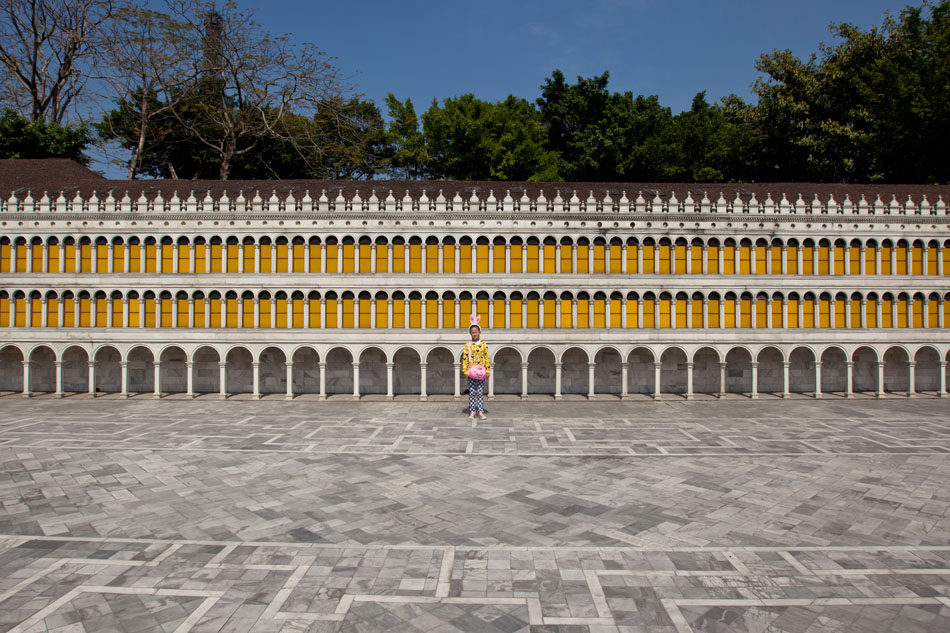
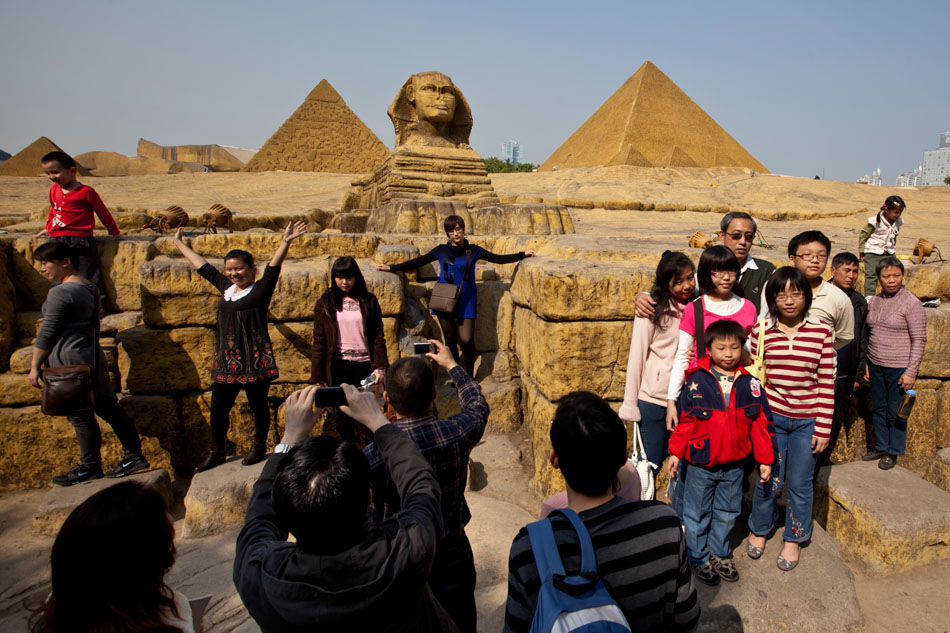
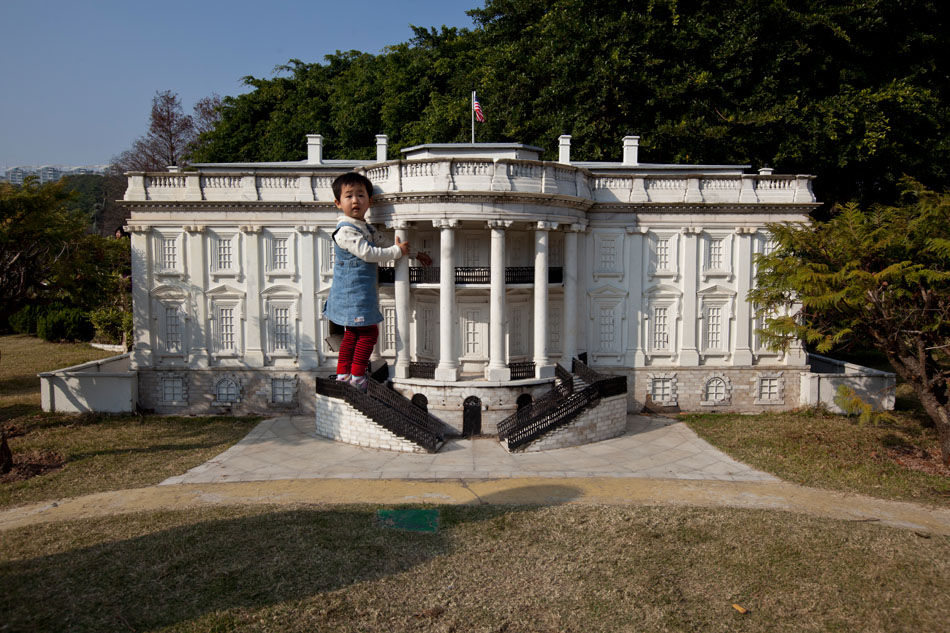
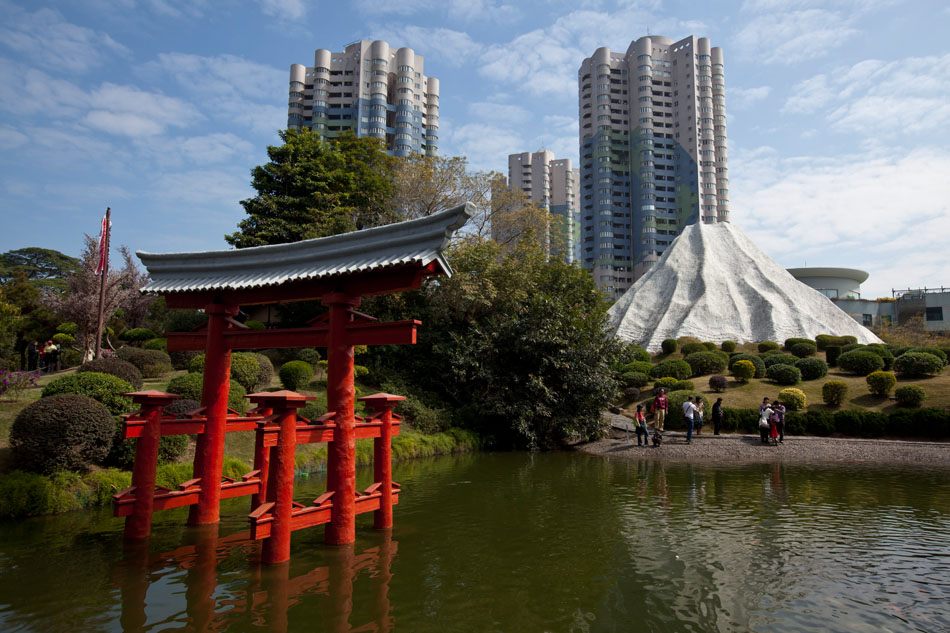
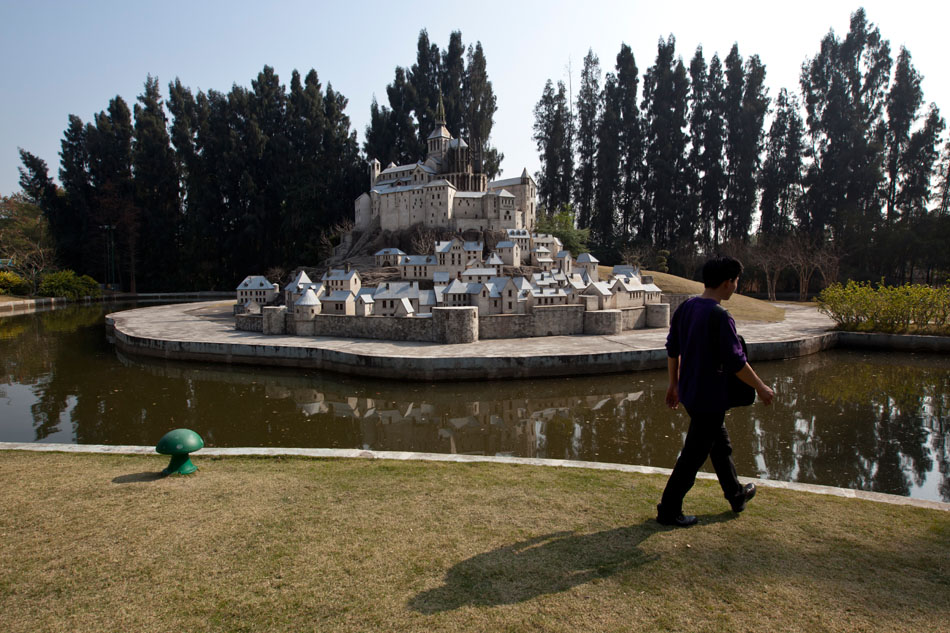

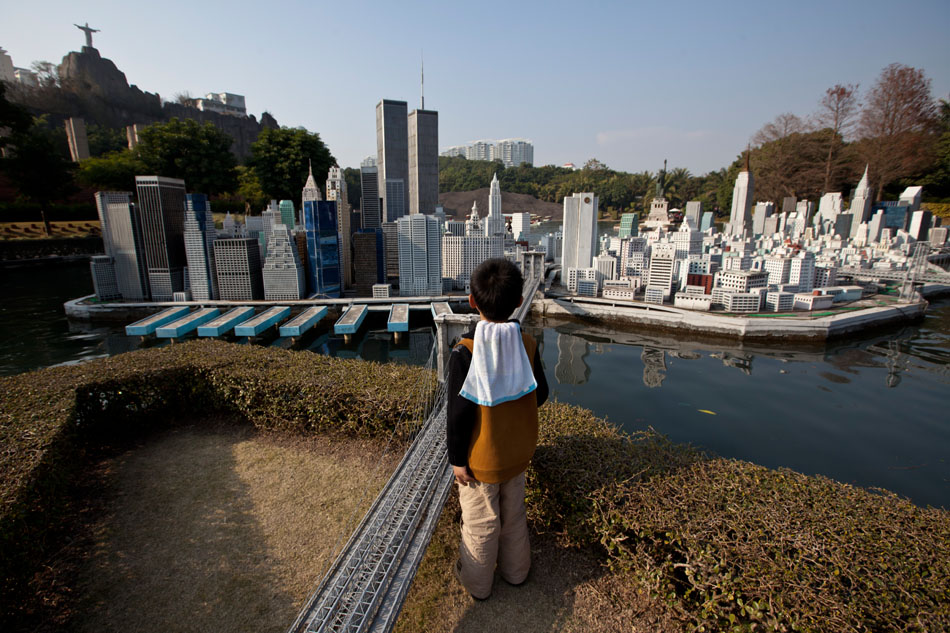
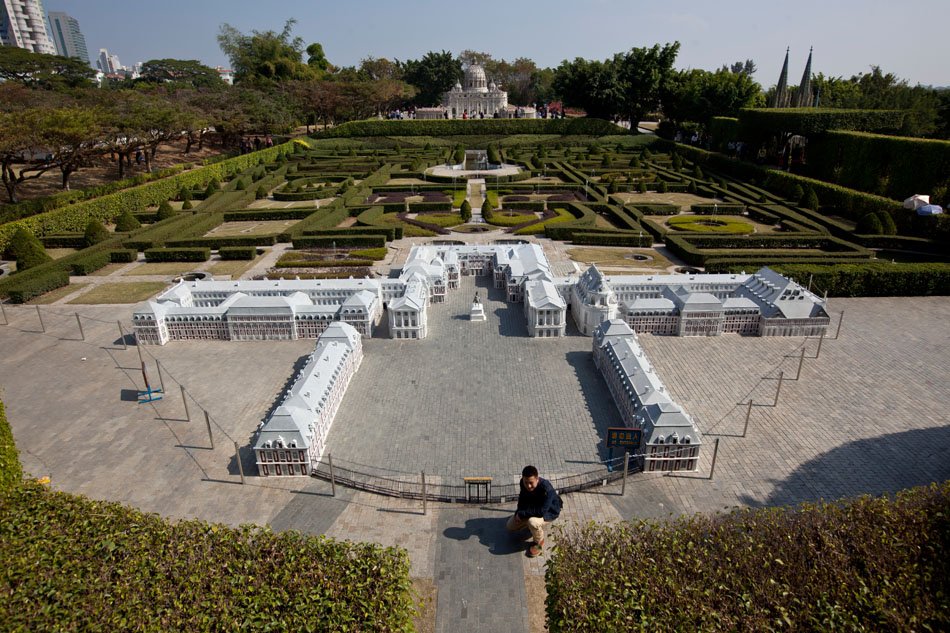

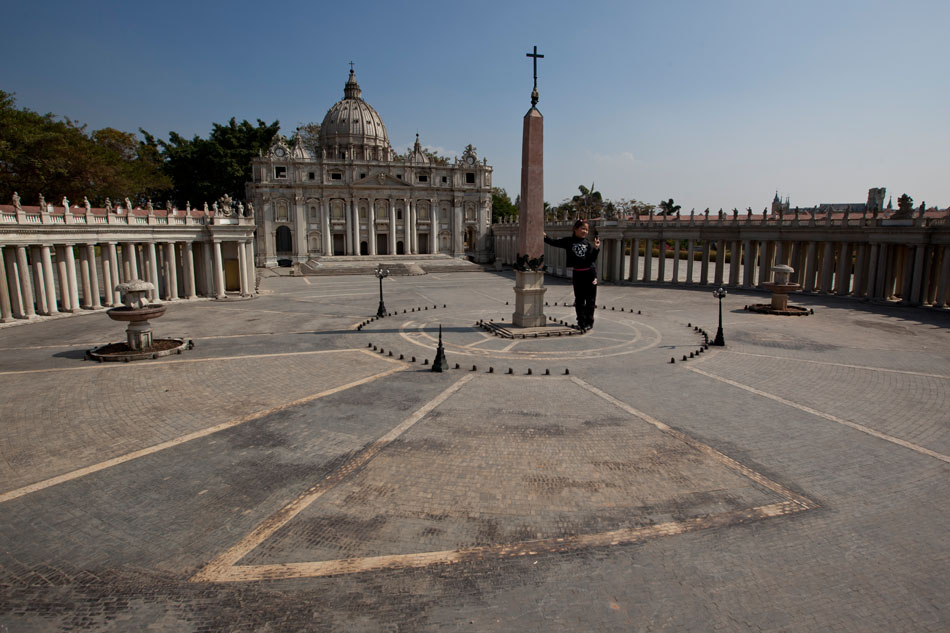

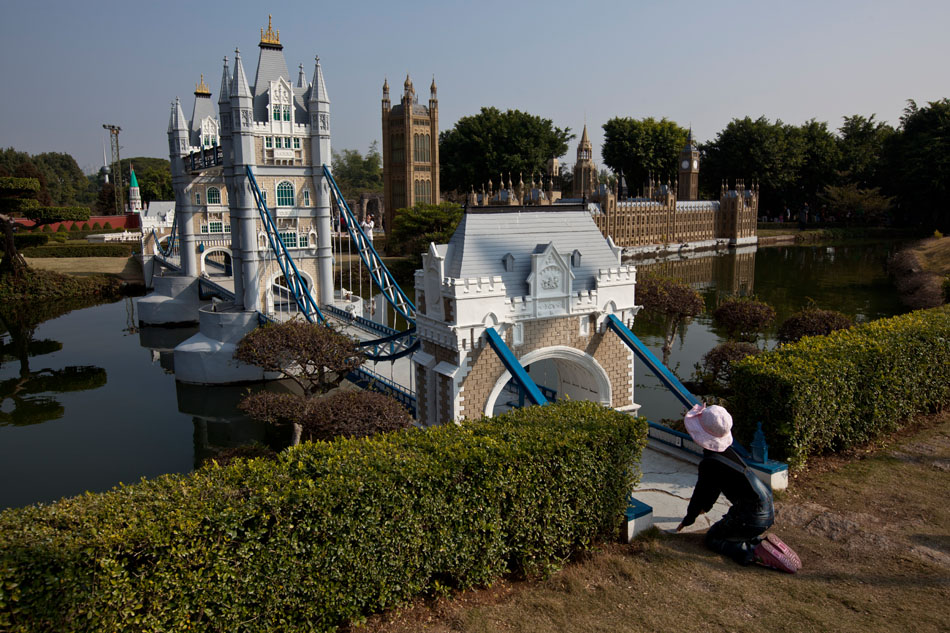
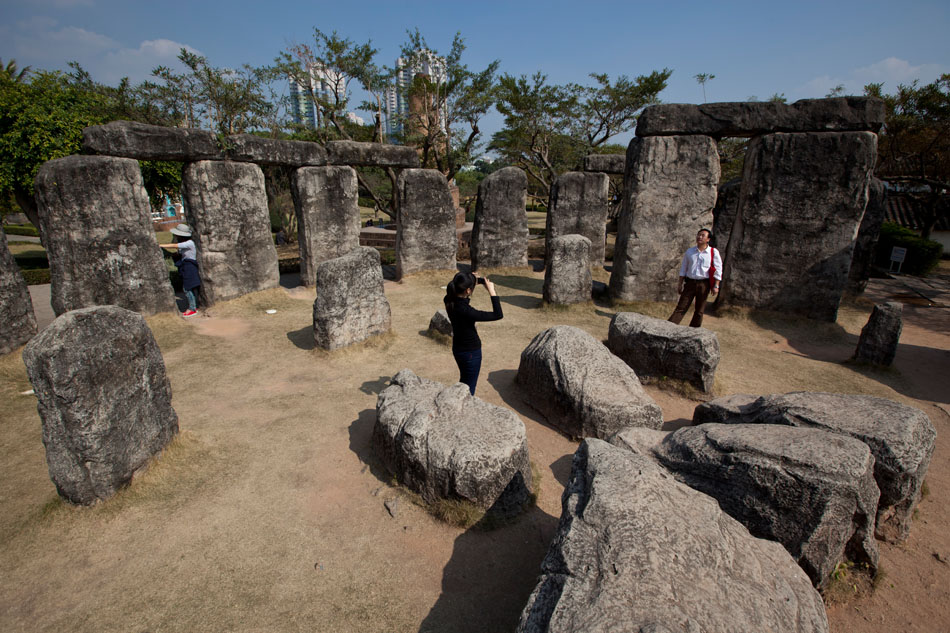
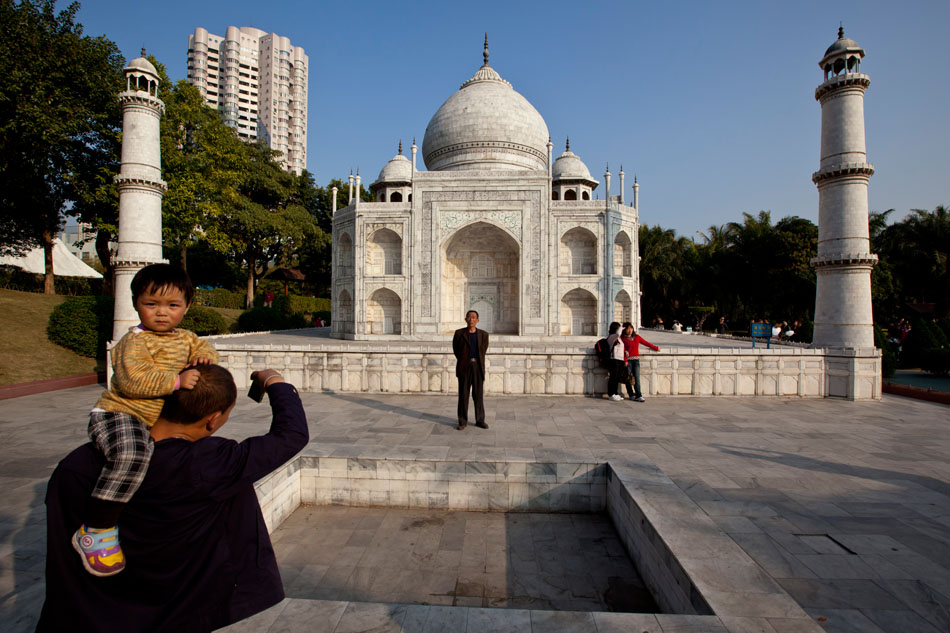
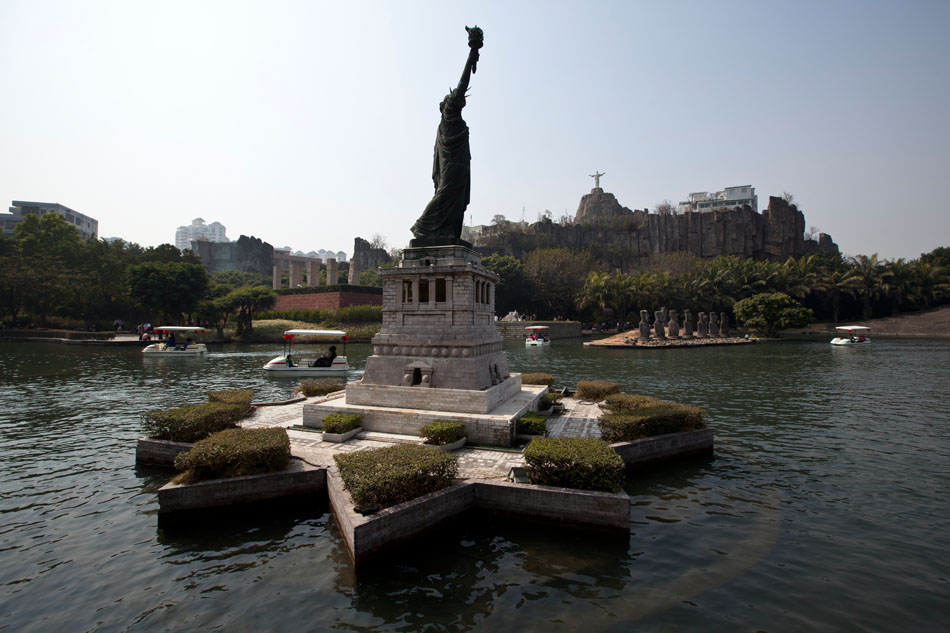
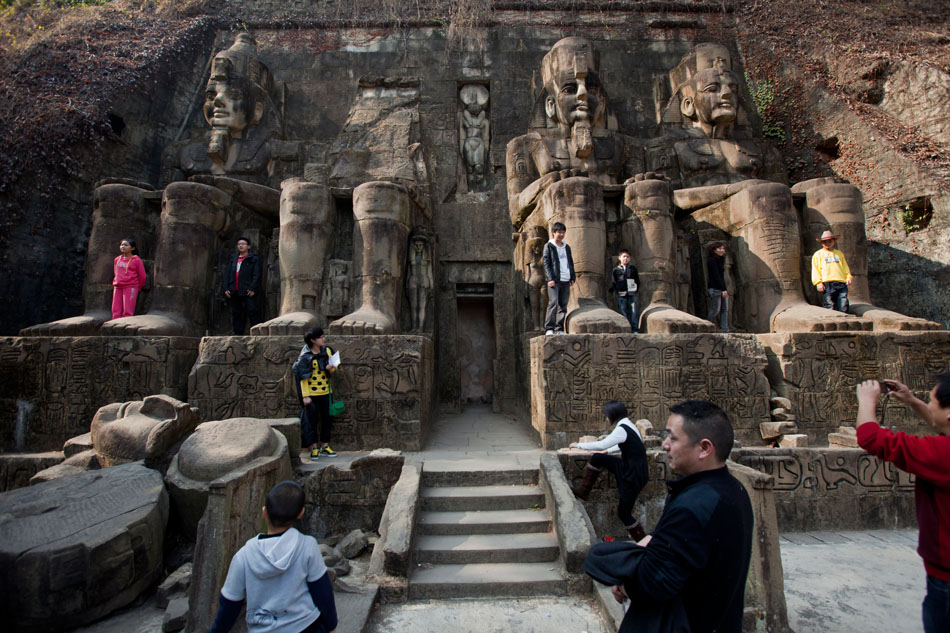
Feb 23, 2011 | Consumerism, Counterfeit Paradises, Development
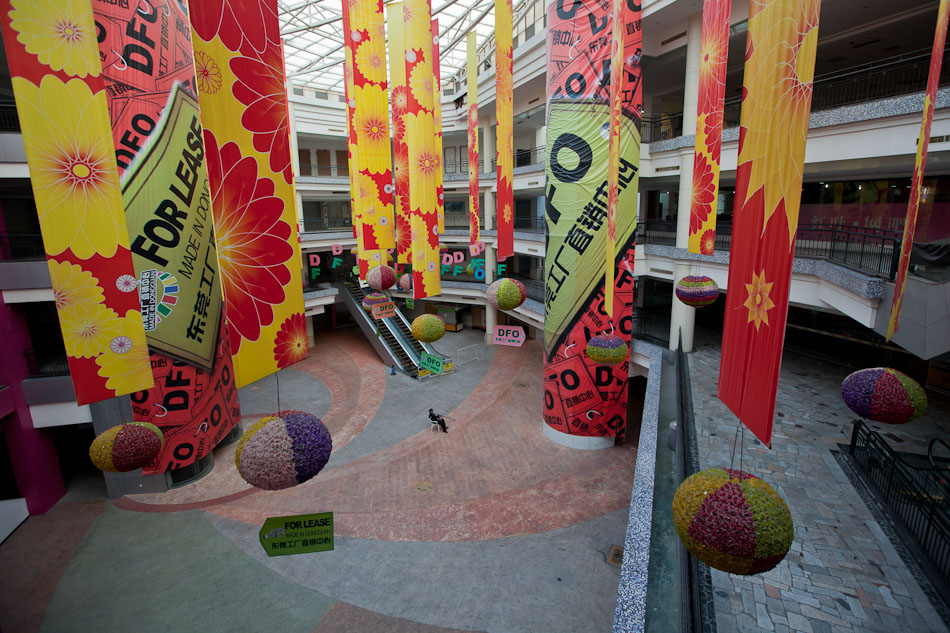
A local billionaire built it, and they did not come. The South China Mall was the most ambitious and largest retail space every conceived in China, if not the world, when it opened in 2005. Constructed smack in the middle of the Pearl River Delta between Shenzhen and Guangzhou, about 4 million people live within six miles of it, 9 million within twelve miles and 40 million within sixty miles. Nonetheless, six years later, the South China Mall only maintains a 1% occupancy rate at best. This unabatedly empty temple to consumerism remains unfinished on top floors and is only sporadically visited thanks to the attached amusement park, Amazing World. For the time being dust and dismembered mannequins reign over the 6.5 million square foot venture. Although China might be the fastest growing consumer market in the world, the South China Mall reveals the vulnerability of this burgeoning economic giant. Also, check out this short film done on the place by Sam Green.
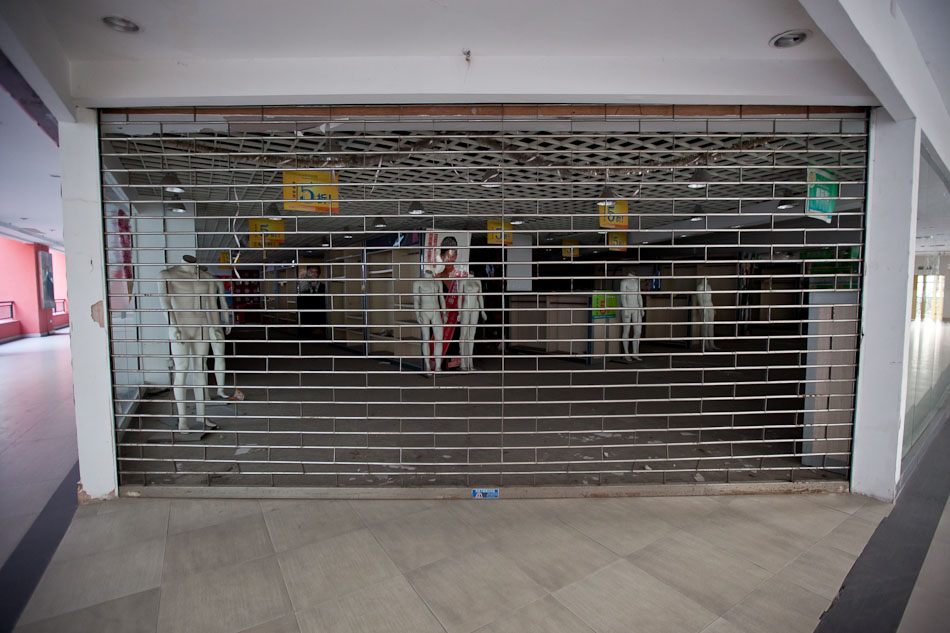
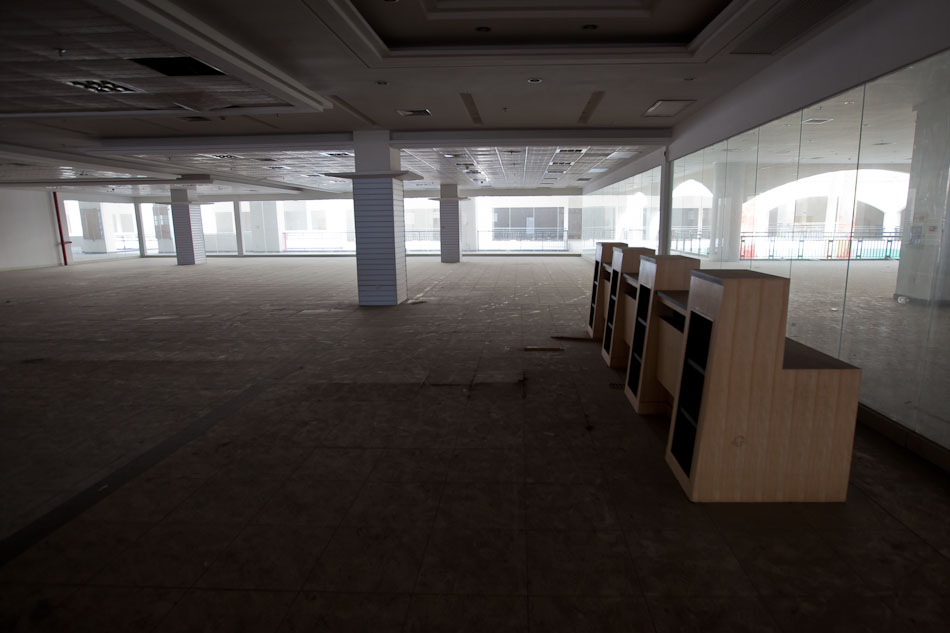
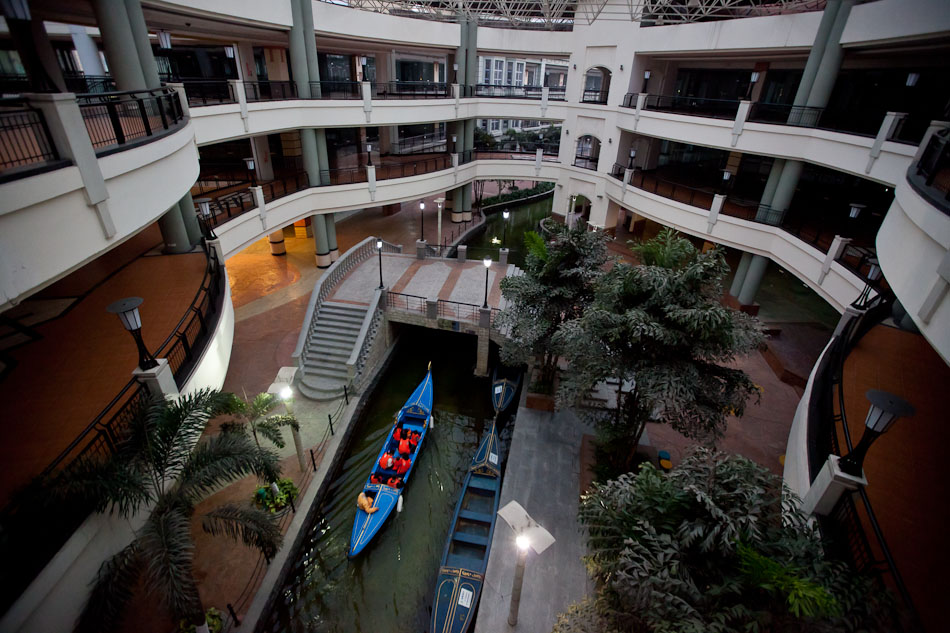

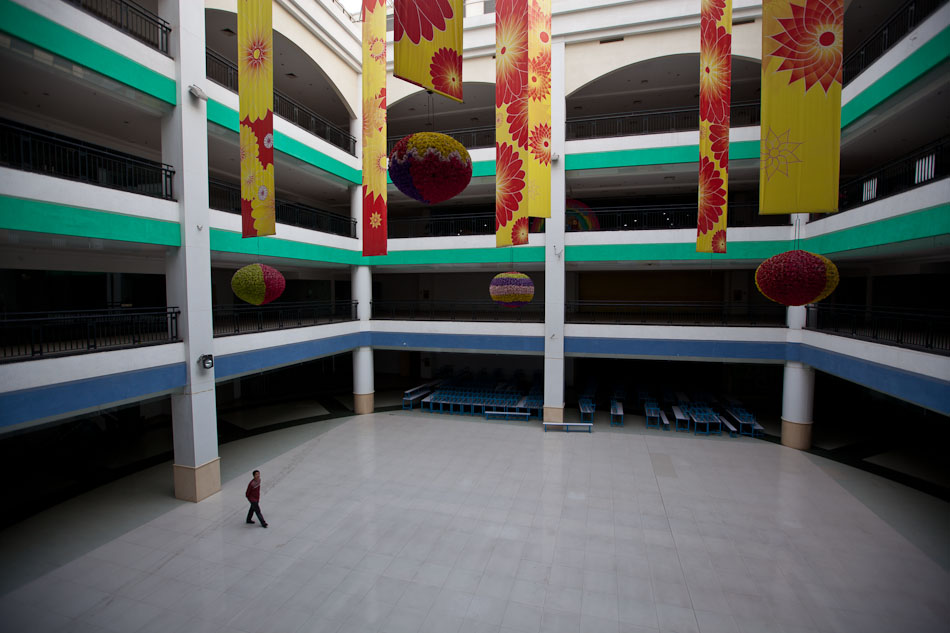
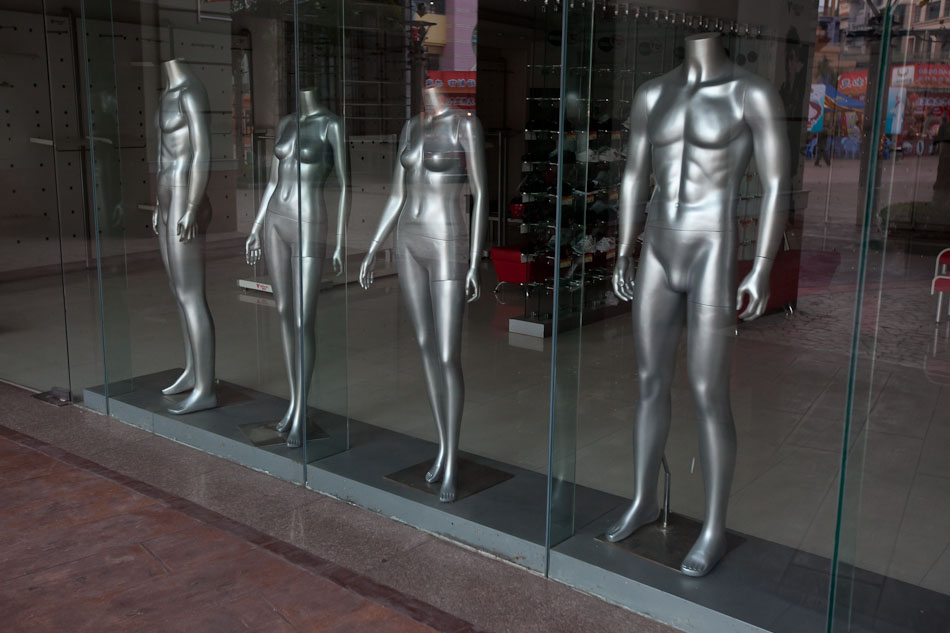
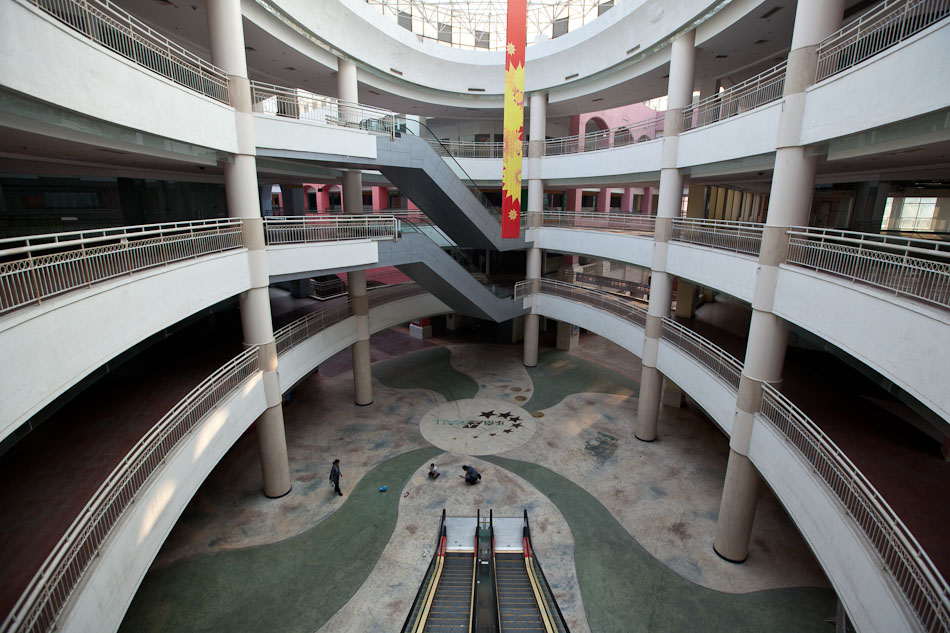
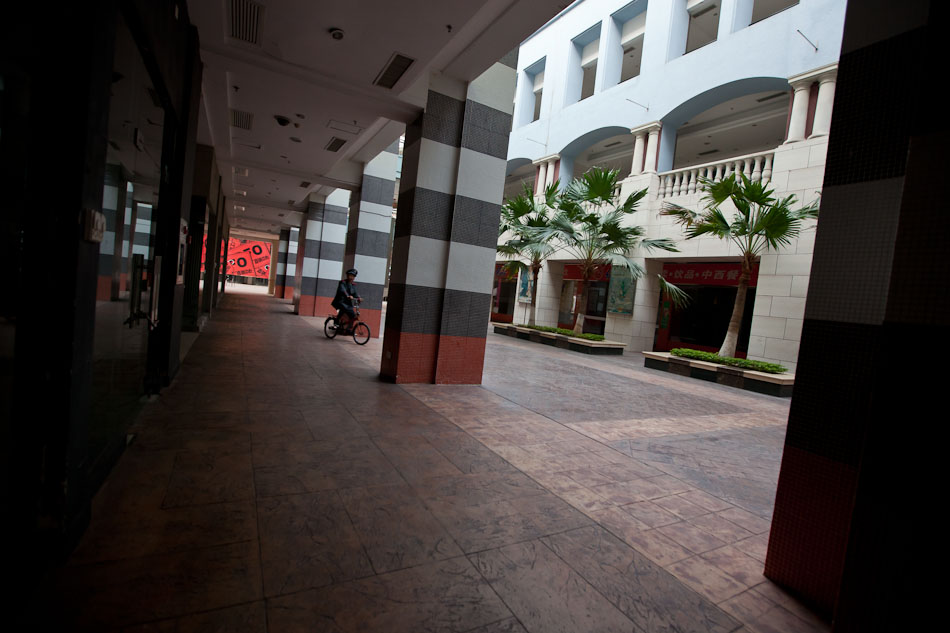
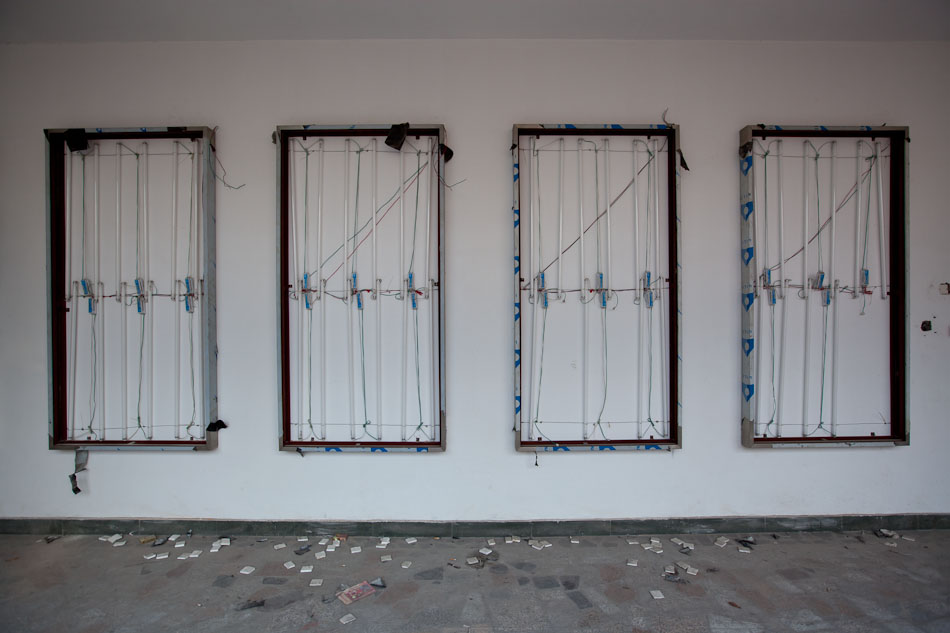
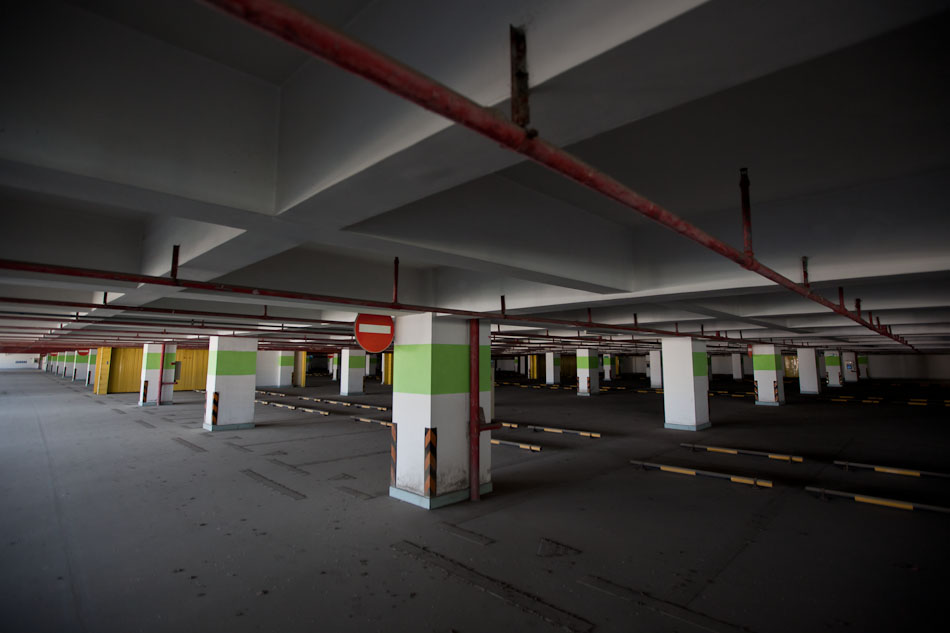
Nov 11, 2010 | Counterfeit Paradises, Society
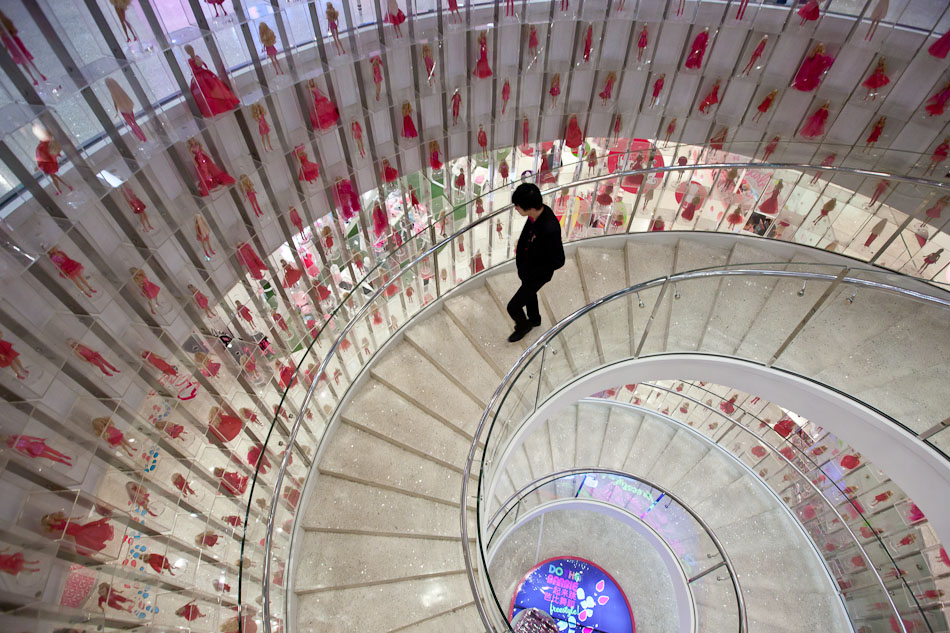
Just days before Barbie’s 50th birthday last March, the House of Barbie opened its doors in Shanghai and introduced China to over six floors of Barbie merchandise and services that catered to almost every need of a Barbie-princess-in-training. It was a full on Barbie assault from the start as you rode an entrance escalator bathed in pink light with the sound of giggling girls playing in the background. Aside from a daunting array of Barbie doll varieties, there was also a Barbie spa offering services such as the Plastic Smooth facial or Barbie Bust Firming treatment, a Barbie catwalk where girls can dress up as Barbie and put on their own fashion show, a Barbie design center where creatives can produce a custom-made Barbie, and a Barbie Cafe complete with Barbie-themed food and a pink martini bar. The Barbie spearhead into China came with a US$30 million dollar price tag and huge expectations. Sales of Barbie continue to fall with the financial downturn and Mattel International is counting on China to pick up the slack. With the spa and martini bar, the House of Barbie also hopes to stir up interest amongst older women in China who otherwise wouldn’t be targeted in western markets. Major designers such as Vera Wang, Patricia Field of “Sex and the City” fame, and handbag maker Judith Lieber all contributed to the merchandise including a US$15,000 Barbie wedding dress. Barbie, known as “Ba Bi Wa Wa” in Mandarin, still faces plenty of hurdles without the pedigree heritage she enjoys in western countries. Despite initial enthusiasm for the business model, Mattel was forced to downgrade sales expectations by 30% within the first six months of opening the House of Barbie. The interest is there, but whether or not Barbie can have her way with China and engender a new generation of Barbie princesses is yet to be scene. Check out more coverage by the Wall Street Journal and BBC as well as a CNN report detailing a blow-by-blow account of trying to spend twelve hours straight in the House of Barbie.
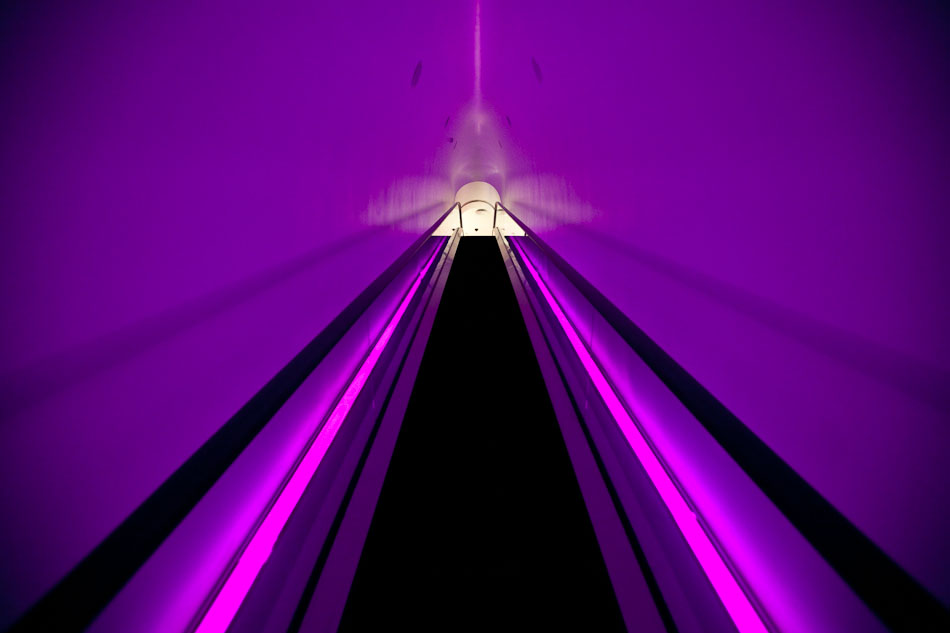
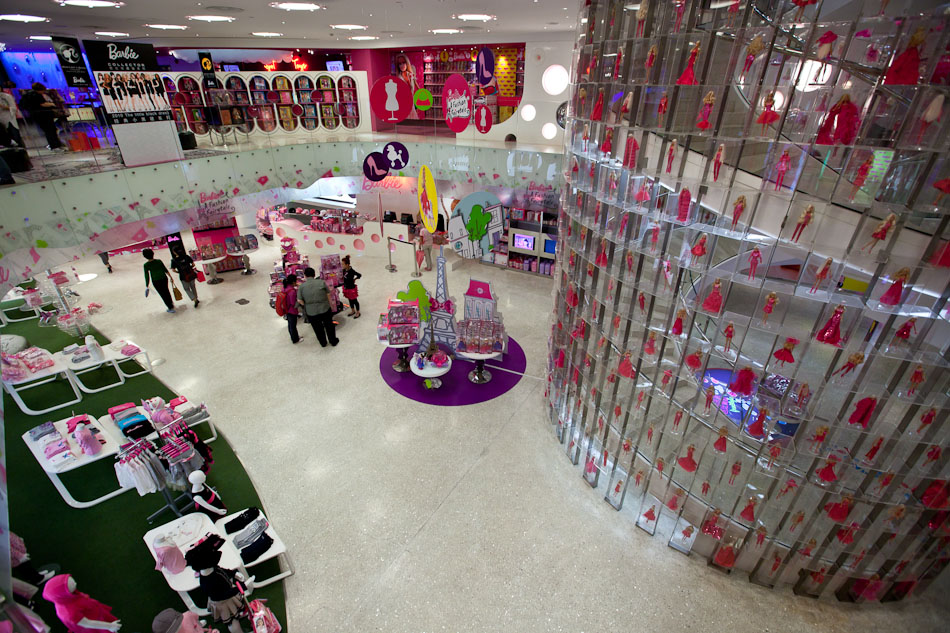
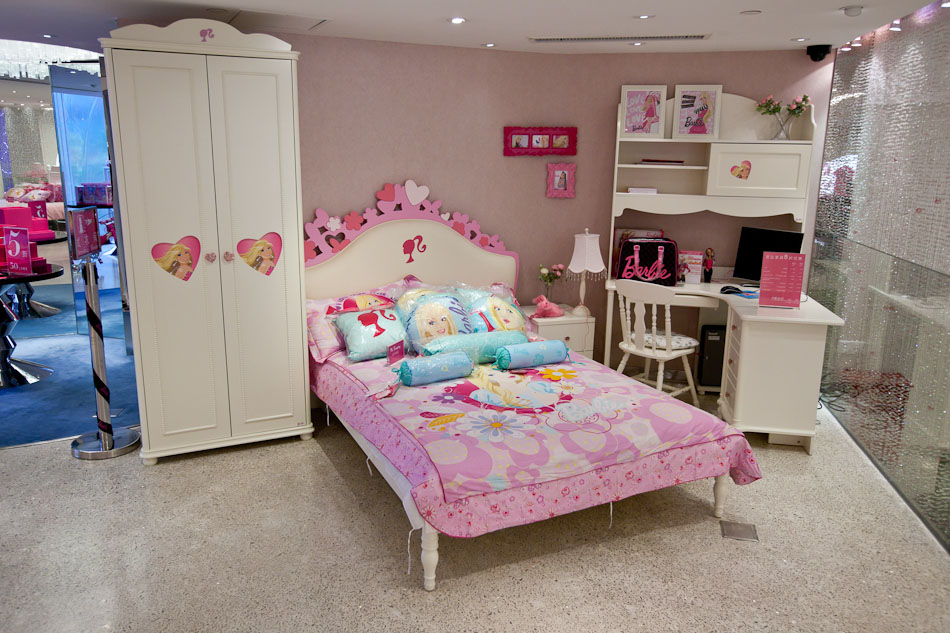

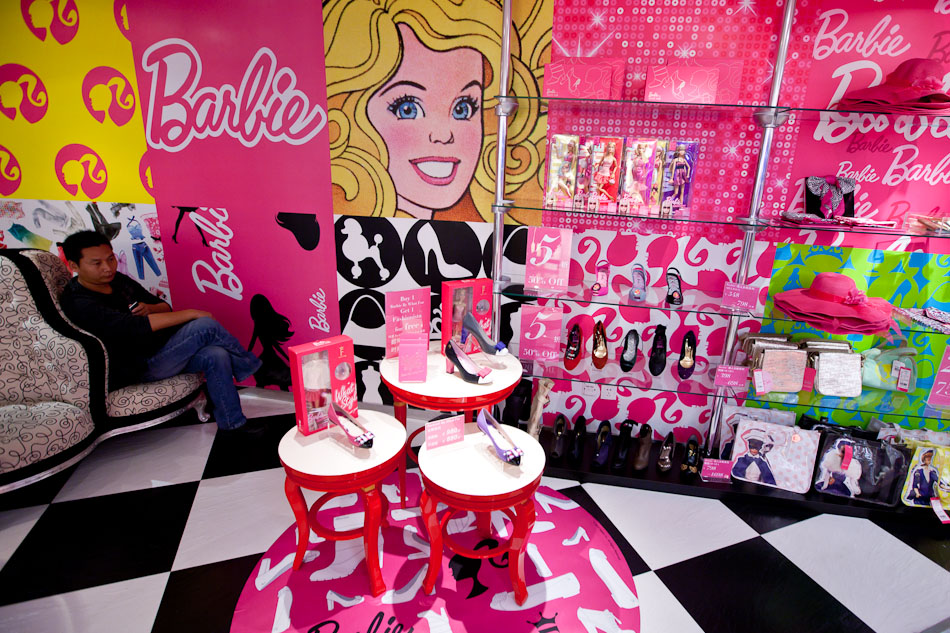
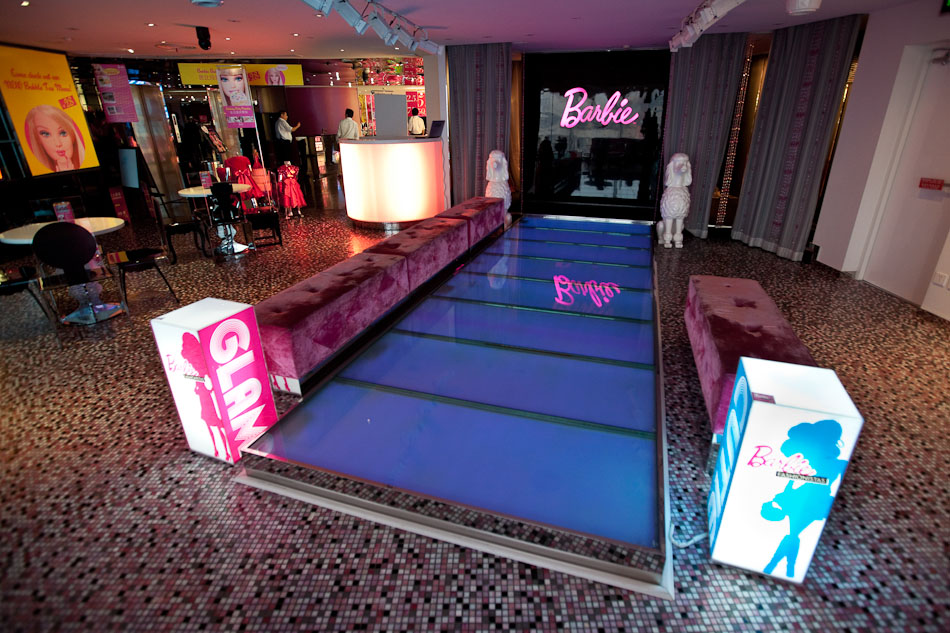
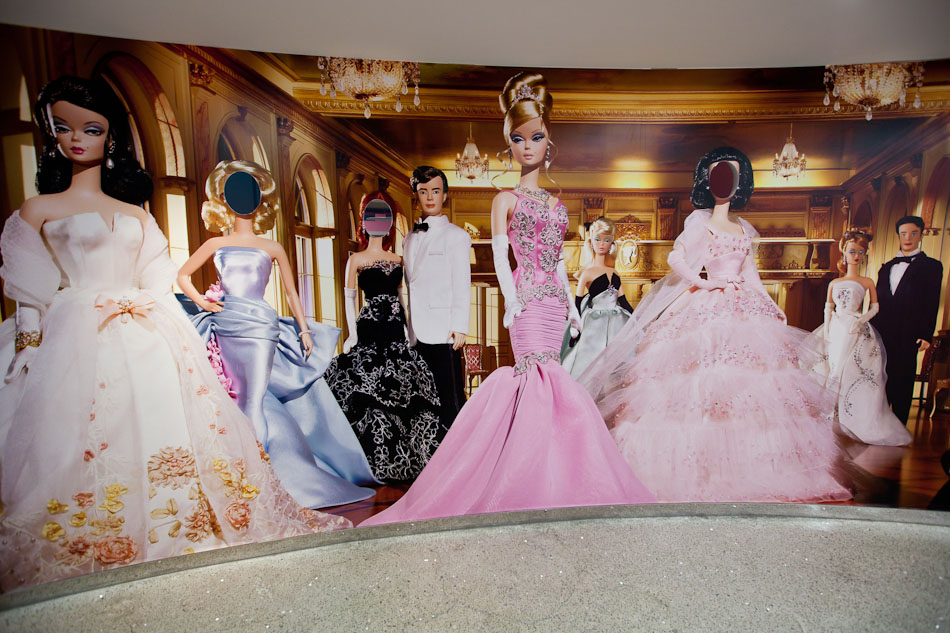

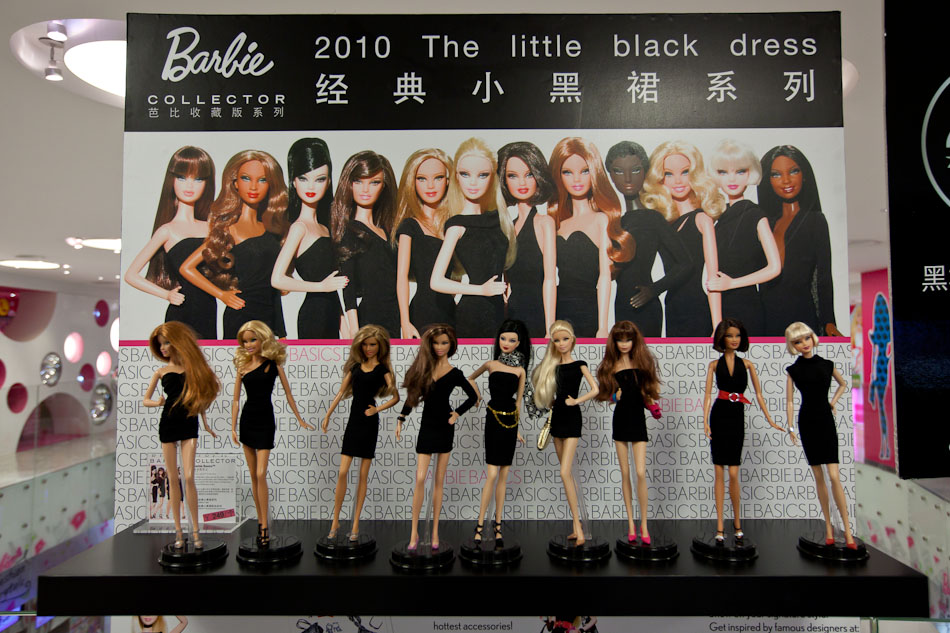
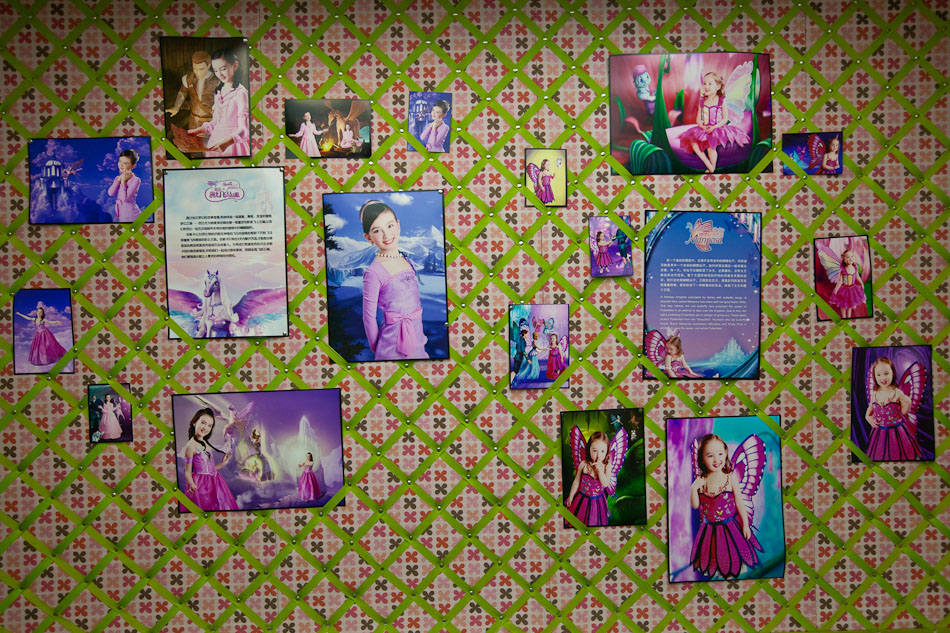

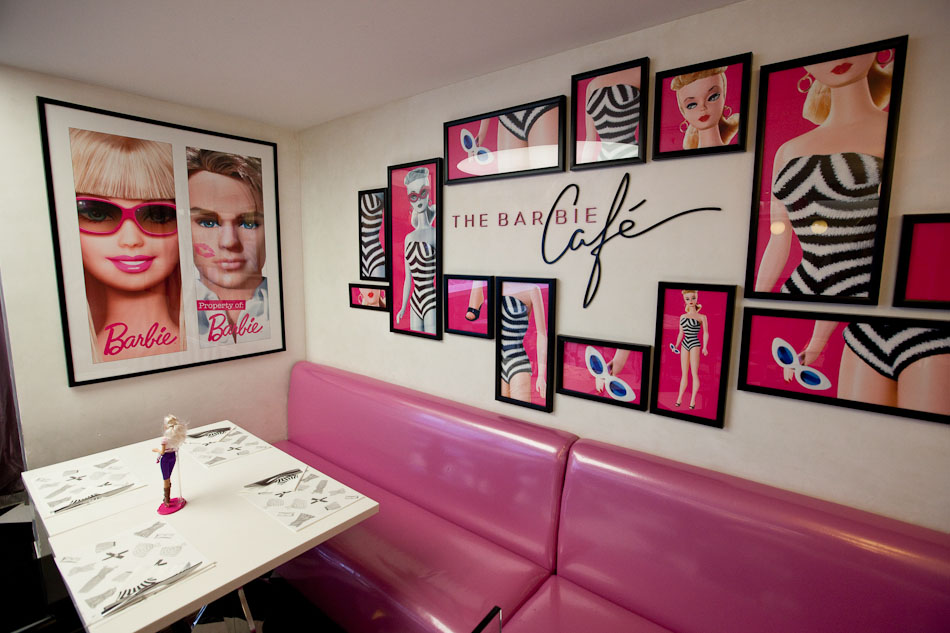
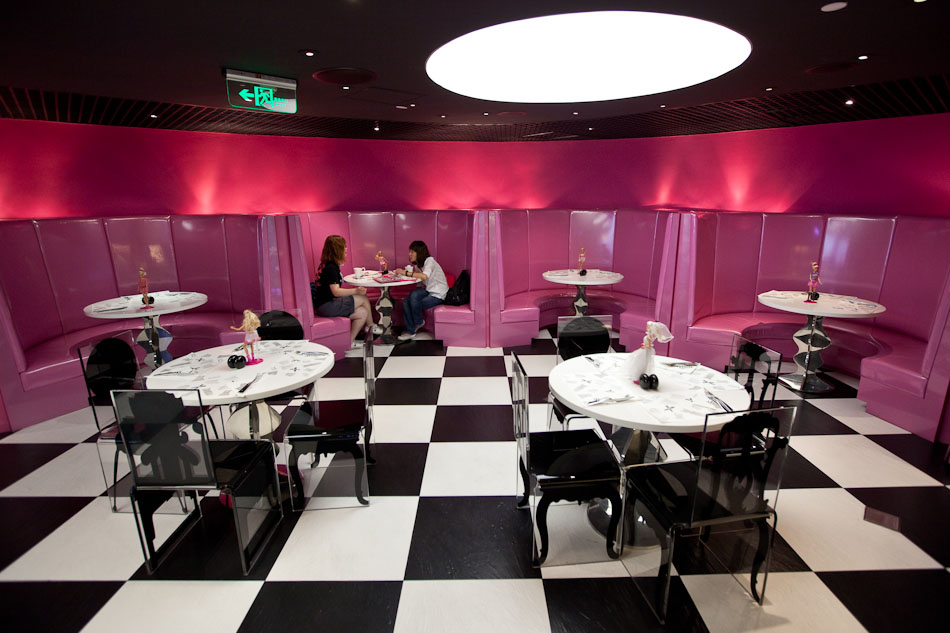
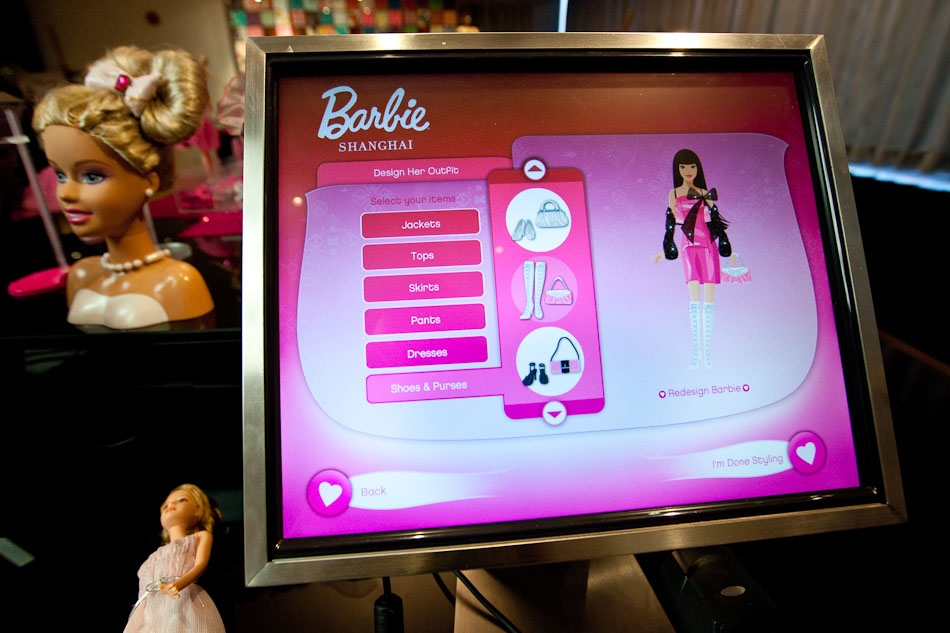
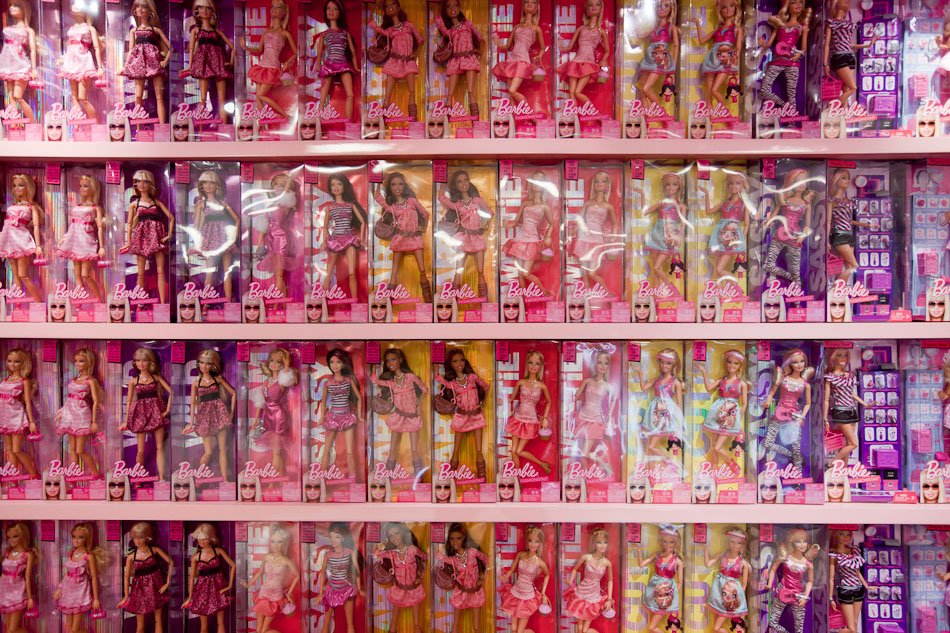
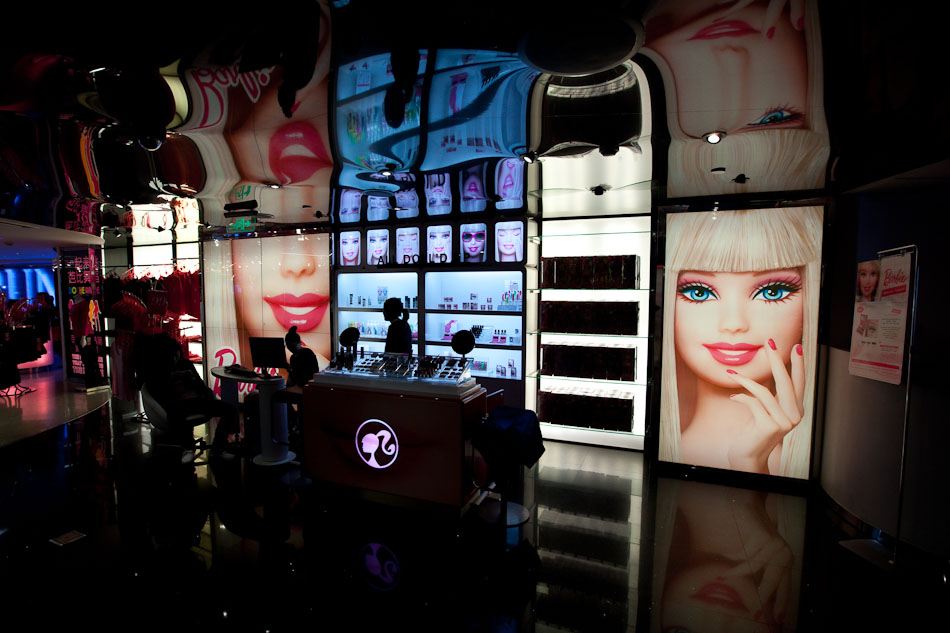
Sep 21, 2010 | Counterfeit Paradises, Society
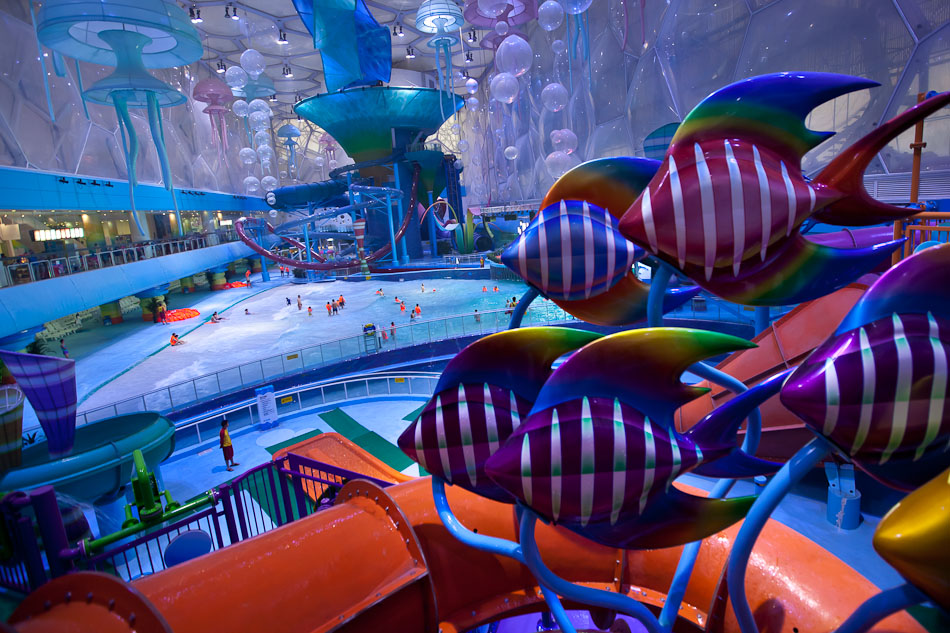
The Water Cube on Beijing’s Olympic Green is easily one of the most enthralling aquatic centers on the planet. Its bubble-like exterior is almost as recognizable in China as the Mao portrait hanging above the Forbidden City. However, ever since Michael Phelps walked away with eight gold medals in 2008, the Beijing municipal government has struggled to make the complex a commercially viable venture and just recently placed all their hope in an incredibly ornate theme park. The “Happy Magic Water Cube, Beijing Water Cube Water Park,” now dominates the southern end of the structure and caters to an emerging urban elite who can afford the hefty entry price. The water park epitomizes the fantastical escapism so sought after by a burgeoning moneyed class in Beijing. Here one can slip into a state of reverie and forget about the smog-covered skies and endless traffic jams just outside the aqua-blue cellular membrane encasing the Happy Magic Water Park. It is the ultimate leisure playground in a country still coming to grips with profound social inequalities.
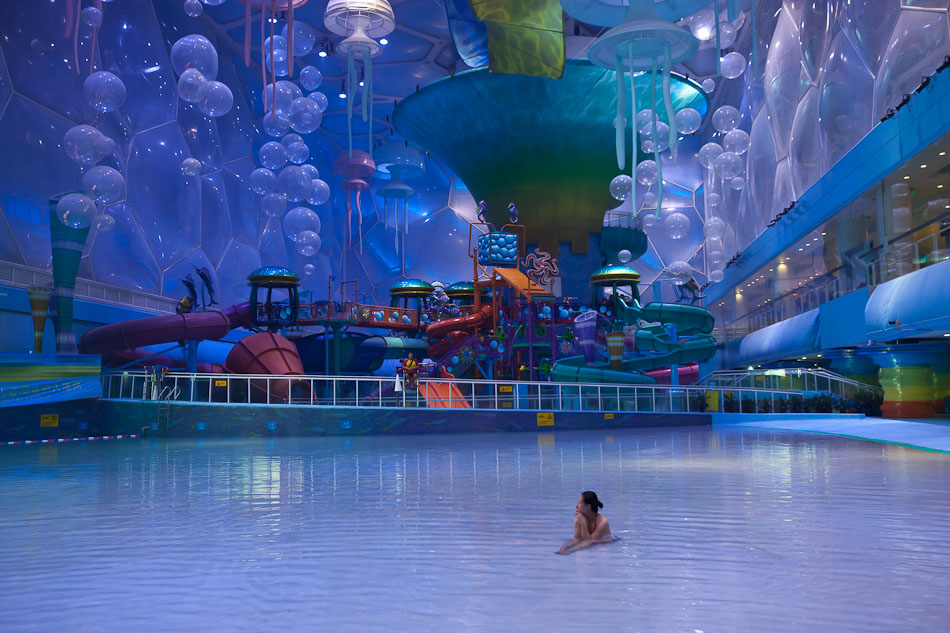

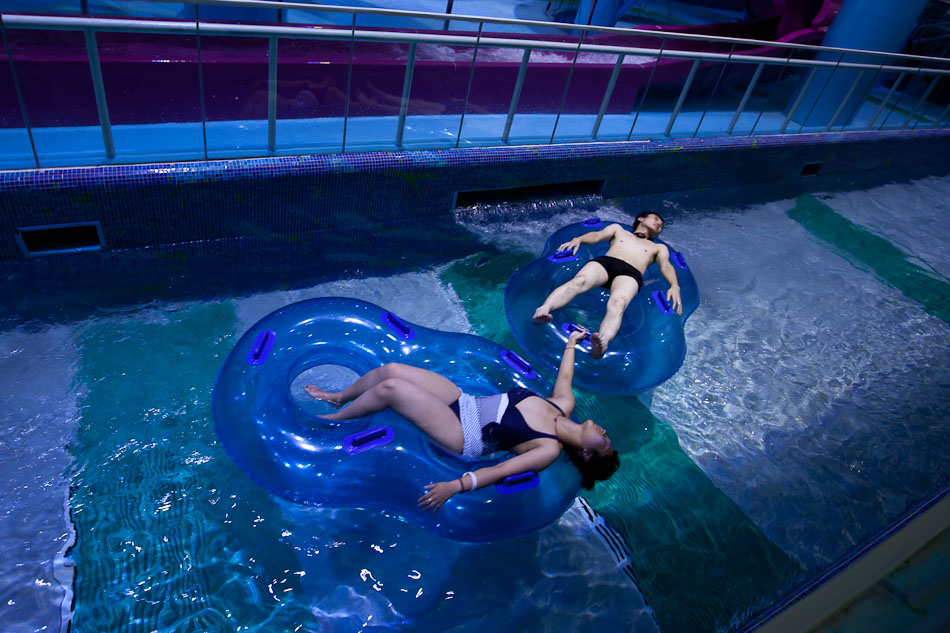
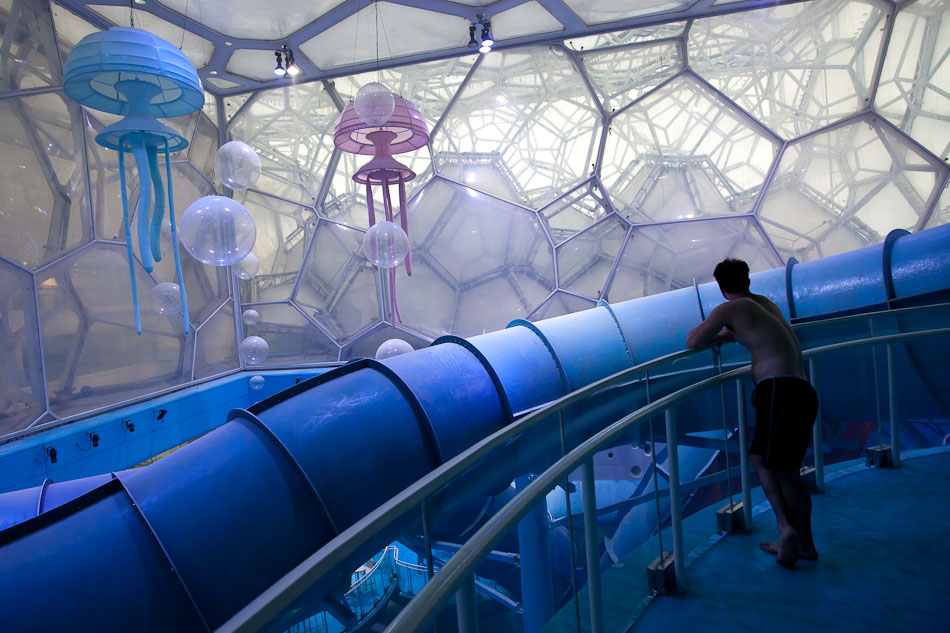
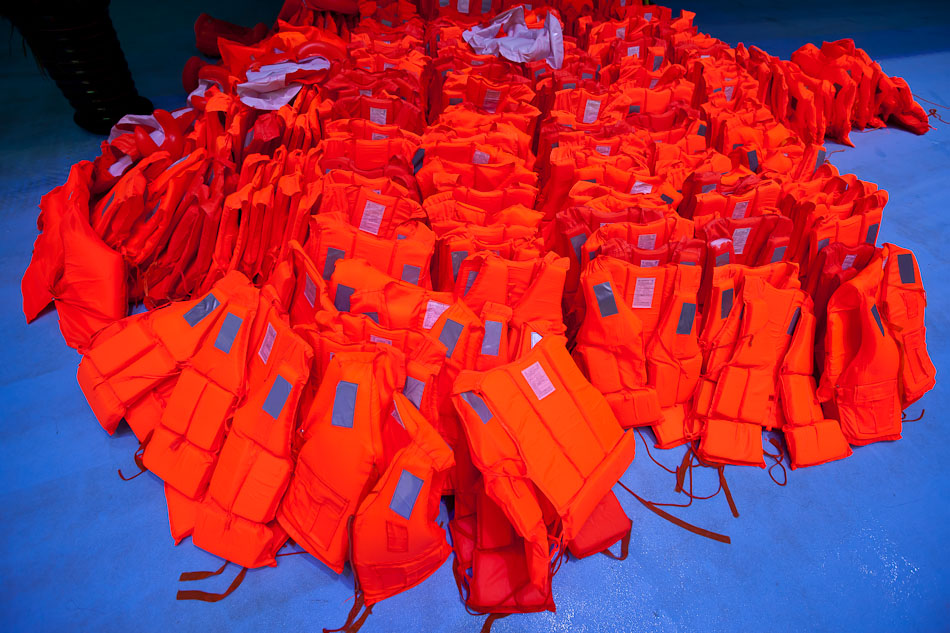
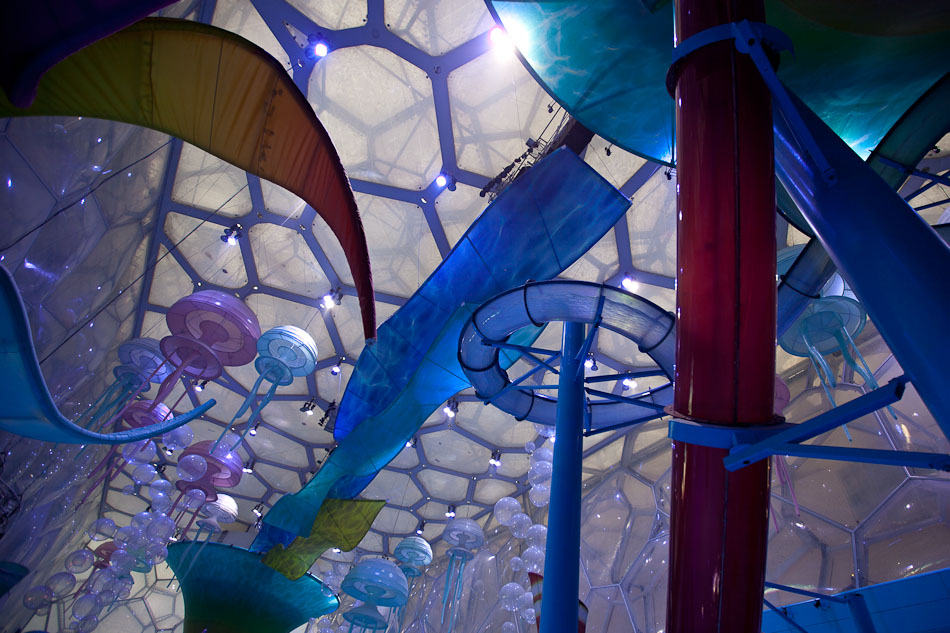
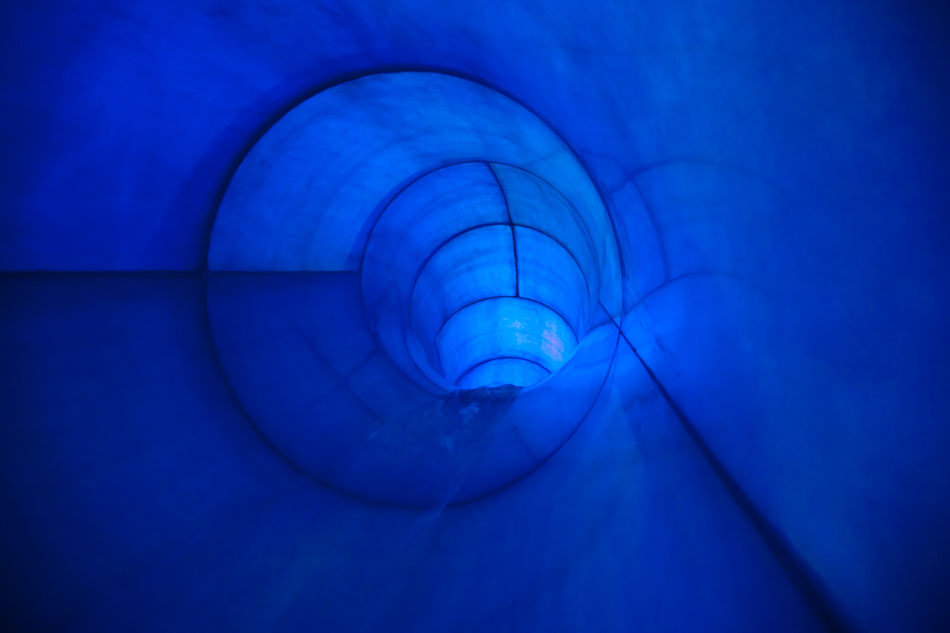
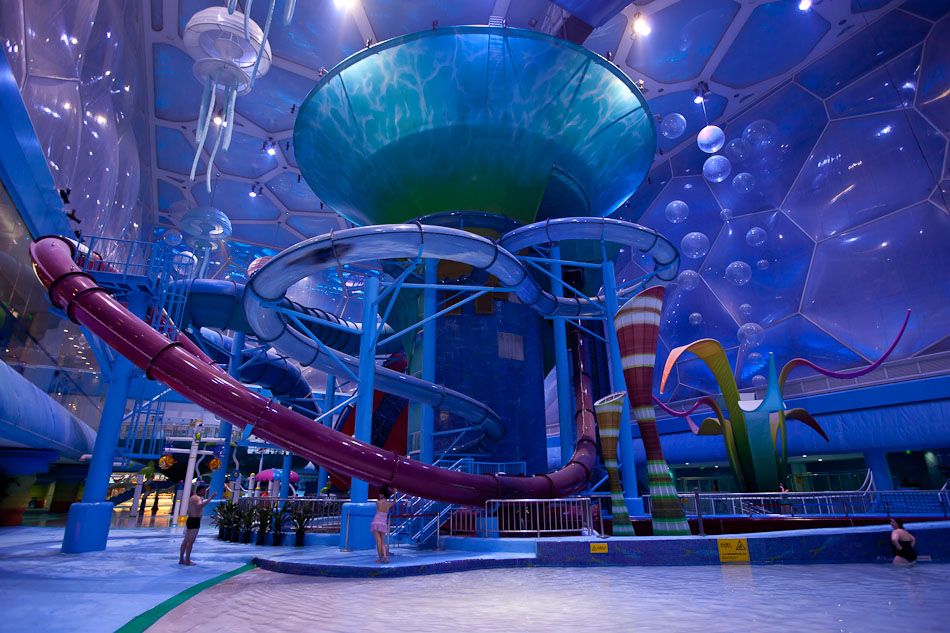

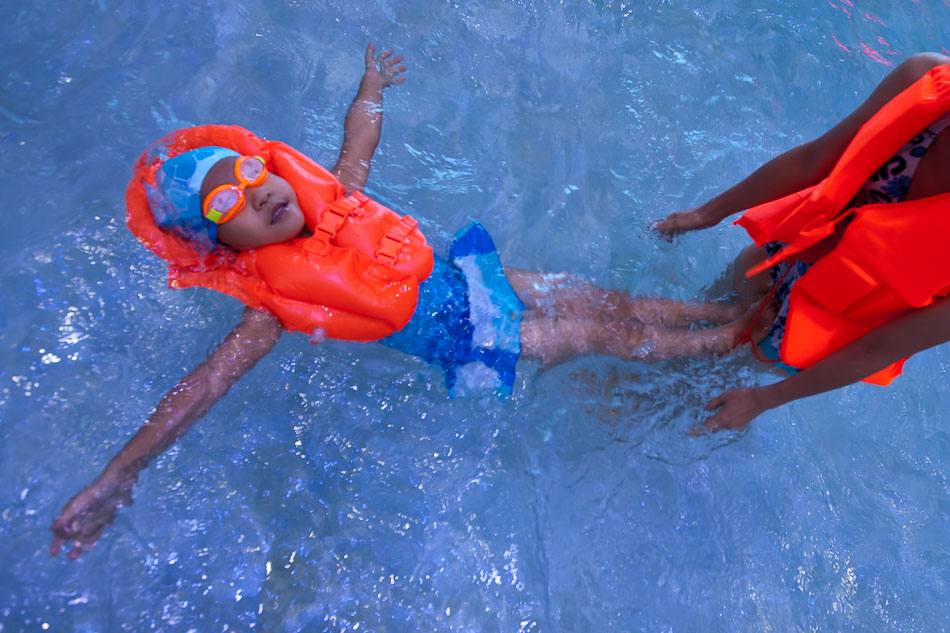

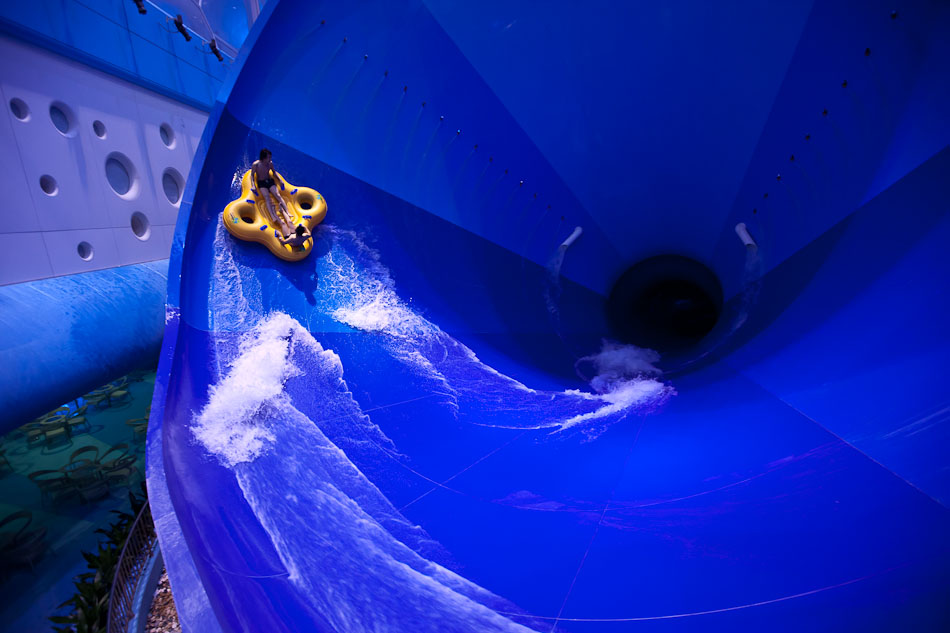
Apr 28, 2010 | Counterfeit Paradises, Society
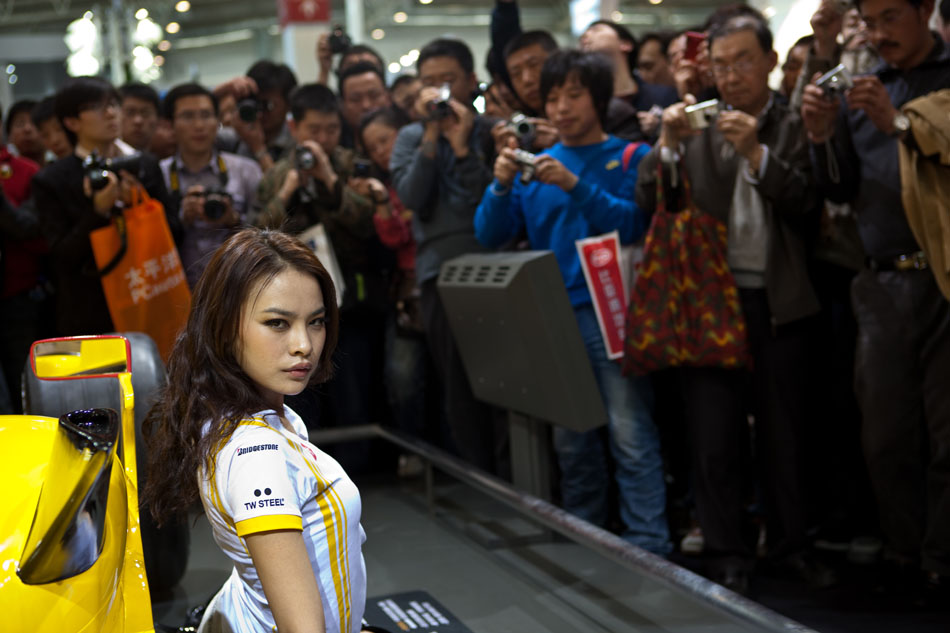
Cars are quickly becoming the most hypersexualized and sought after commodity in China. Purchases already surged 45% last year, surpassing the US with 13.6 million vehicles sold, and show no sign of stopping. The greatest manifestation of this phenomenon is now the Beijing International Automotive Fair held every year on the outskirts of the city. With scantily clad models striking poses in every booth, over 40 luxury cars were sold in the first few days alone including a Bugatti Veyron sporting a 5.5 million USD price tag. Every car manufacture in the world comes to pay homage to the fastest growing car market on the planet.

